Here are my favorite poems about lies and truth categorized:
- Short poems about lies and truth
- Famous poems about truth and lies
- Poems about truth and love
- Poems about truth and life
- Poems about liars and fakes
- Poems about betrayal and deception
So if you want the best poems about lies and truth, then you’re in the right place.
Let’s jump right in!
- 55 Self-Absorbed Poems About Vanity
- 35 Emotional Poems About Deception
- 103 Tempting Poems About Lies
- 41 Crushing Poems About Betrayal

Flabbergasting Poems About Lies and Truth
Submerge yourself in a collection of the most thought-provoking poems about lies and truth, attentively assembled for your literary journey.
Whether you’re seeking works that delve into the complex interplay of deceit and honesty, or reflect on the contrasting nature of these two facets of life, our anthology provides a diverse range of intriguing examples.
With our meticulously curated selection, the finest poems about lies and truth are all conveniently located in one place.
So, take a moment to explore and appreciate the depth and complexity these verses have inspired in poets over the ages!
Keep reading and enjoy the exploration!
My #1 Favorite Poem About Lies and Truth
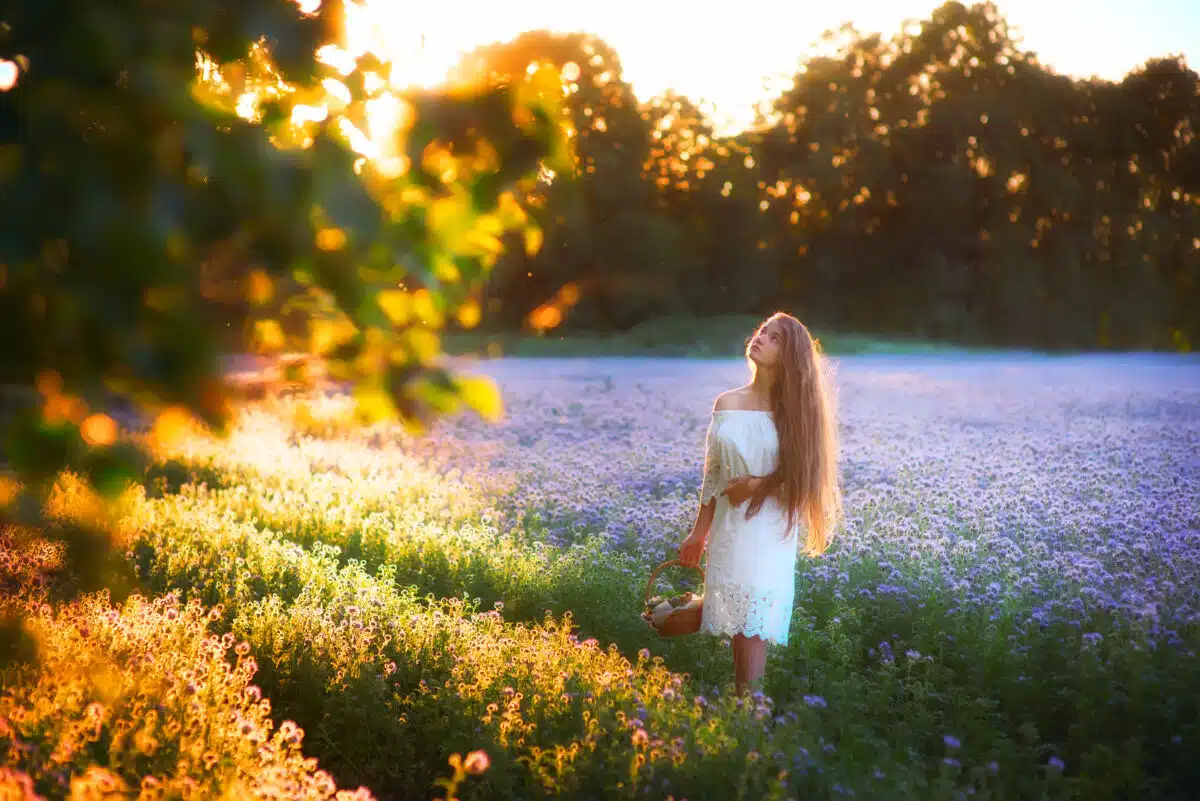
“The World Is All A Fleeting Show” by Thomas Moore
This World is all a fleeting show,
For man’s illusion given;
The smiles of Joy, the tears of Wo,
Deceitful shine, deceitful flow—
There’s nothing true, but Heaven!
And false the light on Glory’s plume,
As fading hues of Even;
And Love, and Hope, and Beauty’s bloom,
Are blossoms gathered for the tomb—
There’s nothing bright, but Heaven!
Poor wanderers of a stormy day!
From wave to wave we’re driven,
And Fancy’s flash, and Reason’s ray,
Serves but to light the troubled way—
There’s nothing calm, but Heaven!
Short Poems About Lies and Truth
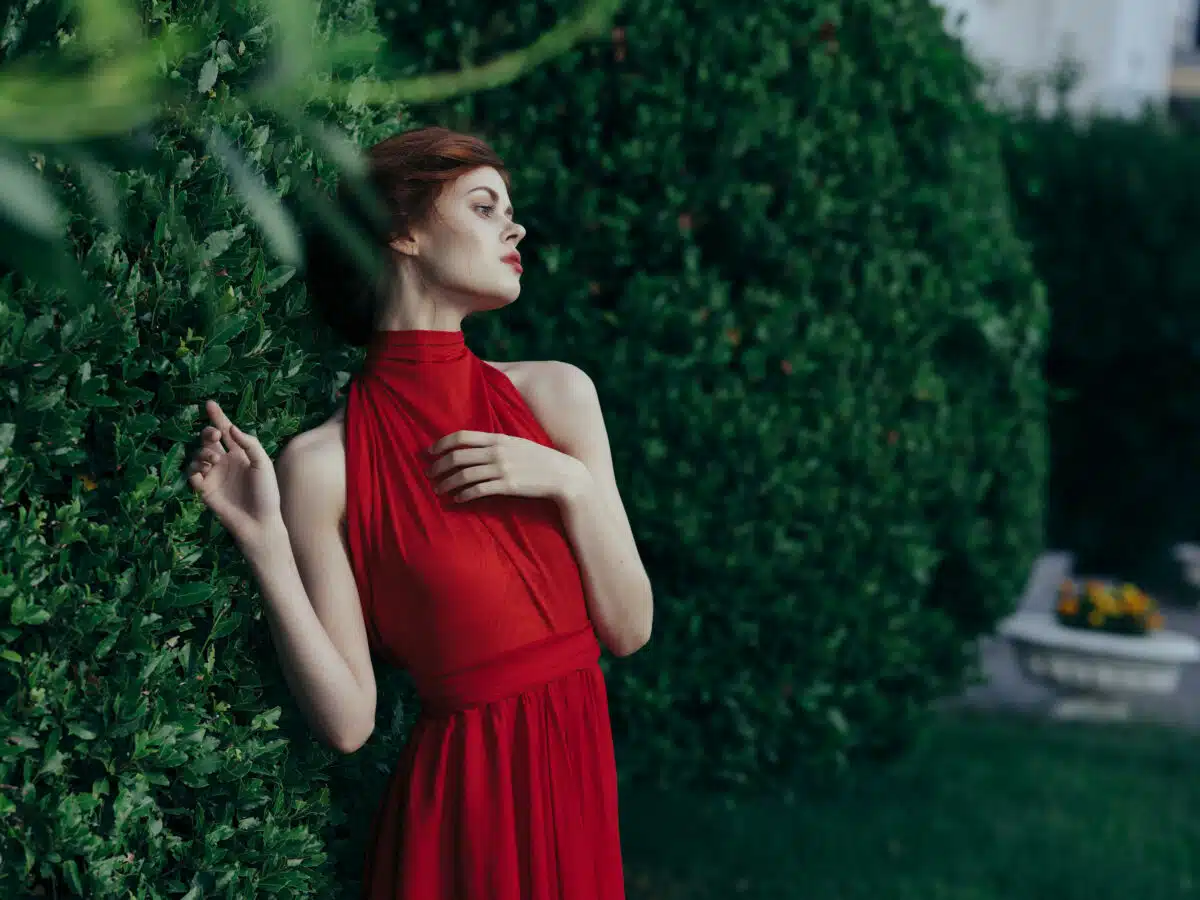
“The Lie” by John Donne
Sir, say not that you love, unless you do,
For often lying will dishonour you.
Lady, I love, and therefore love to do,
And will not lie, unless I lie with you.
You say I lie, I say you lie, judge whether;
If we then both do lie, let’s lie together.
“Epigrams” by Samuel Taylor Coleridge
IV.
If the guilt of all lying consists in deceit
Lie on ’tis your duty, sweet youth!
For believe me, then only we find you a cheat
When you cunningly tell us the truth.
“Scarce any scandal, but has a handle” by Samuel Taylor Coleridge
Scarce any scandal, but has a handle;
In truth most falsehoods have their rise;
Truth first unlocks Pandora’s box,
And out there fly a host of lies.
Malignant light, by cloudy night,
To precipices it decoys one!
One nectar-drop from Jove’s own shop
Will flavour a whole cup of poison.

“Sacrifice” by Ralph Waldo Emerson
Though love repine, and reason chafe,
There came a voice without reply,—
‘T is man’s perdition to be safe,
When for the truth he ought to die.’
“False Dawn” by Rudyard Kipling
To-night, God knows what thing shall tide,
The Earth is racked and fain,
Expectant, sleepless, open-eyed;
And we, who from the Earth were made,
Thrill with our Mother’s pain.
“False Impulse To Study.” by Friedrich Schiller
Oh, how many new foes against truth! My very soul bleedeth
When I behold the owl-race now bursting forth to the light.

“Oh, Just Beyond the Curve of Ideal Quest” by Iris Tree
Oh, just beyond the curve of ideal quest
That changes as a sea wave to the wind,
Beyond the cloud that folds around a star,
And dawn, that stands ajar to let us in,
Lies that to which our loves and dreams have gone,
The paradise of all we might have been,
While we are washed back downwards in the dark
Where tides recede, to dwindle with the foam.
“False Love And True Logic” by Samuel Laman Blanchard
THE DISCONSOLATE
My heart will break, I’m sure it will:
My lover, yes, my favorite, he
Who seemed my own through good and ill,
Has basely turned his back on me.
THE COMFORTER
Ah! silly sorrower, weep no more;
Your lover’s turned his back, we see;
But you had turned his head before,
And now he’s as he ought to be.
“As sunk, avoiding mortal touch” by Edward Coote Pinkney
VIII.
As sunk, avoiding mortal touch,
The Cabalist’s discovered treasure,
So met his sight, escaped his clutch,
Many appearances of pleasure,
Deceitful as that airy lie,
The child of vapour and the sky,
Which cheats the thirsty Arab’s eye,
Only the palm, heat-loving tree,
Or bird of happy Araby,
May burn, and not to die :
Philosophy has lost the powert
From ashes to reform a flower ;
Magic and alchymy no more
Men’s primal strength and youth restore,
Nor could those great and dream-like arts,
While flourishing, revoke their hearts :
The feelings rise regenerate never,
But, once consumed, are gone forever.
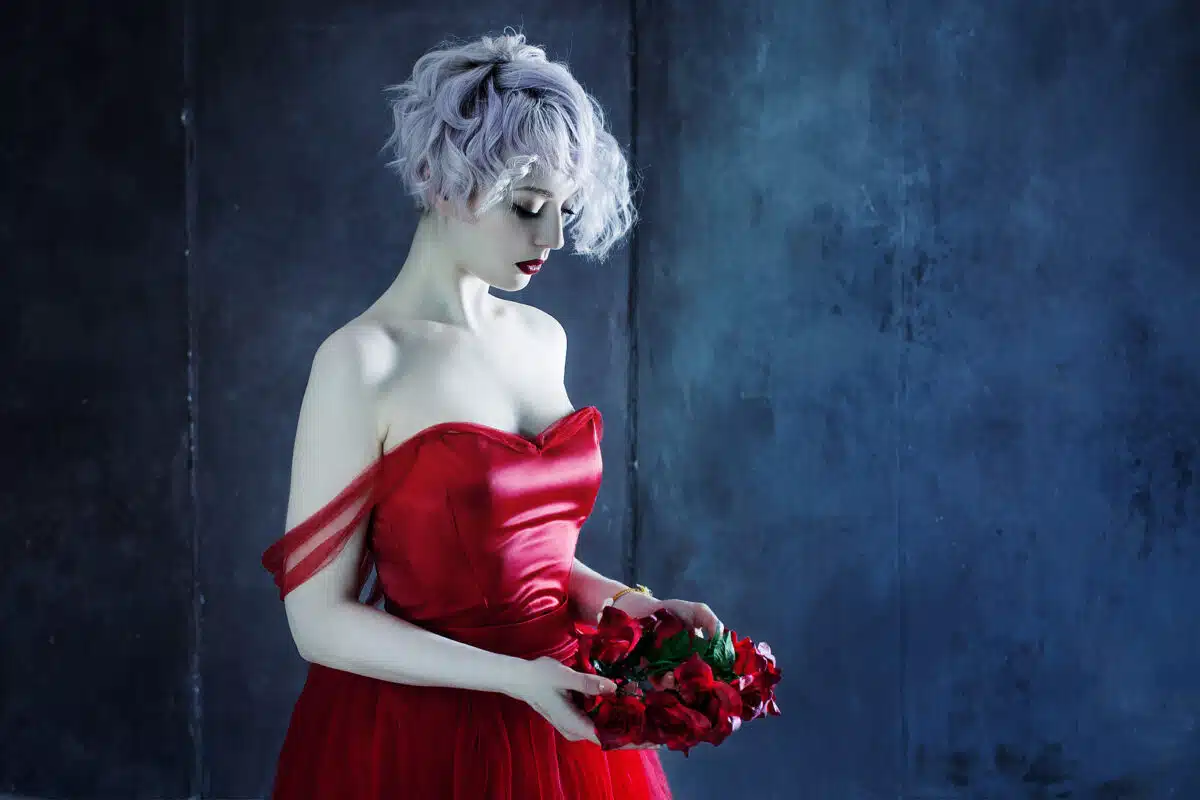
“The Roots of Our Longing are Probing the Heart of Night” by Iris Tree
The roots of our longing are probing the heart of night,
delving and twining together that our ultimate truth
may grow out of the darkness that bewilders and nourishes.
Out of the earth, the dust, the crystals of frost that bind
themselves like a tight crown over our heads.
Through the mould and the frost our hair and fingers shall
prick their spears of pallor and flame, and in the green
ardour of our up-rushing leaves the red goblets of fire
shall open, and masses of white flowers, milky as the star-sprays
that droop over Heaven, shall splash their bright
foam from the darkness, as waves that rise and break into
a fountain of blossoms.
“The Truth” by Archibald Lampman
Friend, though thy soul should burn thee, yet be still.
Thoughts were not meant for strife, nor tongues for swords.
He that sees clear is gentlest of his words,
And that’s not truth that hath the heart to kill.
The whole world’s thought shall not one truth fulfil.
Dull in our age, and passionate in youth,
No mind of man hath found the perfect truth,
Nor shalt thou find it; therefore, friend, be still.
Watch and be still, nor hearken to the fool,
The babbler of consistency and rule:
Wisest is he, who, never quite secure,
Changes his thoughts for better day by day:
To-morrow some new light will shine, be sure,
And thou shalt see thy thought another way.
“Truth” by Robert Herrick
Truth is best found out by the time and eyes;
Falsehood wins credit by uncertainties.
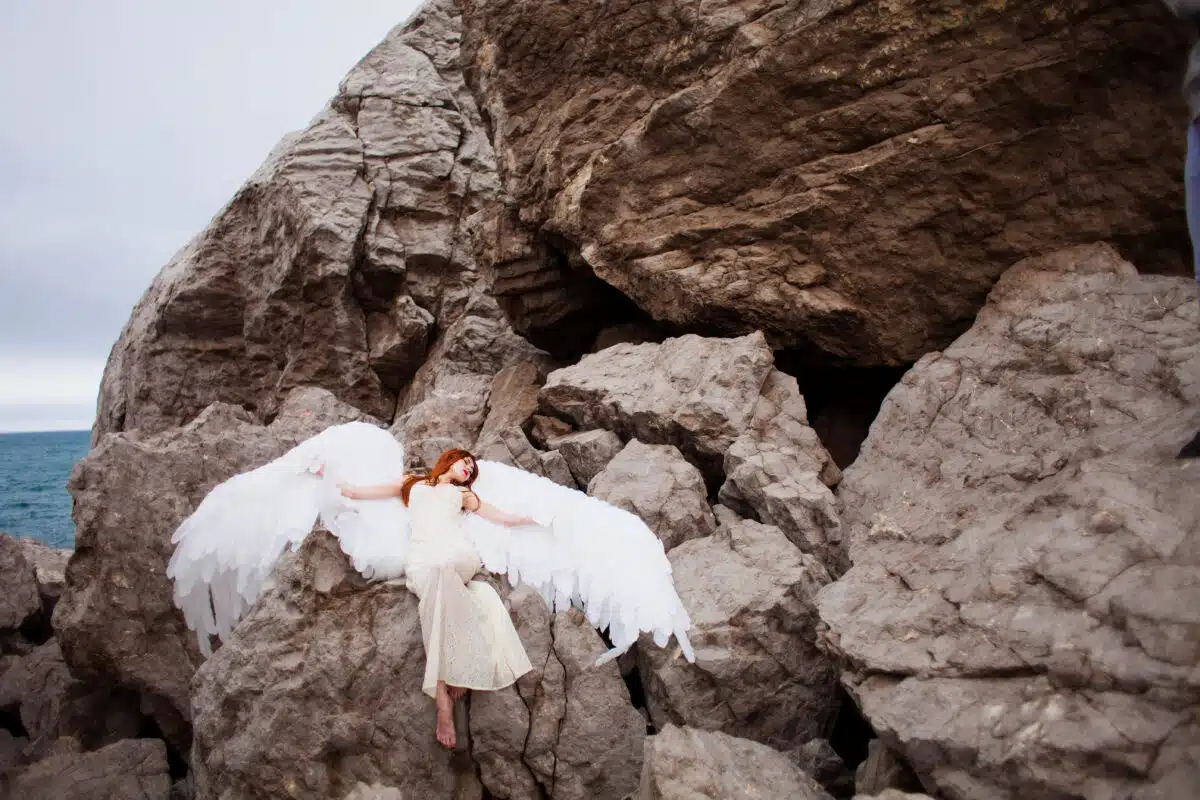
“On Snow” by Jonathan Swift
From Heaven I fall, though from earth I begin,
No lady alive can show such a skin.
I’m bright as an angel, and light as a feather,
But heavy and dark, when you squeeze me together.
Though candour and truth in my aspect I bear,
Yet many poor creatures I help to ensnare.
Though so much of Heaven appears in my make,
The foulest impressions I easily take.
My parent and I produce one another,
The mother the daughter, the daughter the mother.
“Truth” by Unknown
There was a young lady named Ruth,
Who had a great passion for truth.
She said she would die
Before she would lie,
And she died in the prime of her youth.
“Truth, Not Form!” by George MacDonald
I came upon a fountain on my way
When it was hot, and sat me down to drink
Its sparkling stream, when all around the brink
I spied full many vessels made of clay,
Whereon were written, not without display,
In deep engraving or with merely ink,
The blessings which each owner seemed to think
Would light on him who drank with each alway.
I looked so hard my eyes were looking double
Into them all, but when I came to see
That they were filthy, each in his degree,
I bent my head, though not without some trouble,
To where the little waves did leap and bubble,
And so I journeyed on most pleasantly.
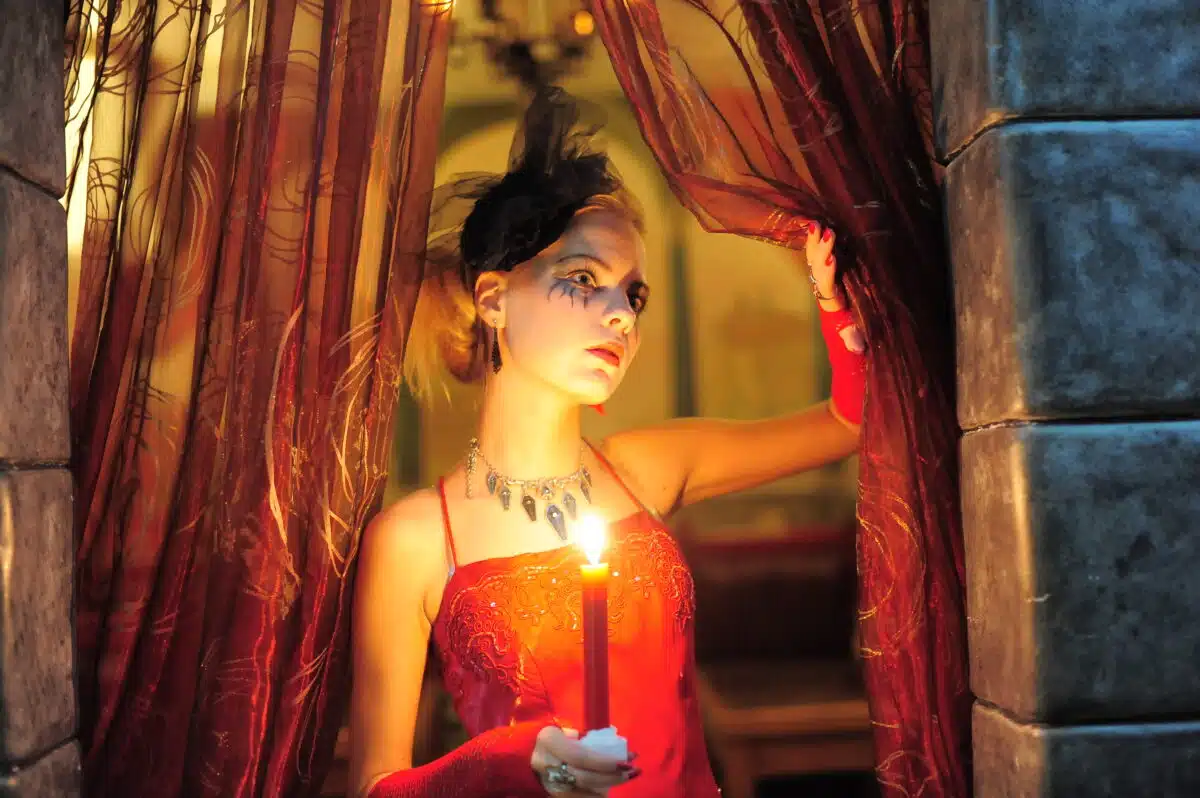
“Truth” by Walter Murdoch
The hero first thought it
To him ’twas a deed:
To those who retaught it,
A chain on their speed.
The fire that we kindled,
A beacon by night,
When darkness has dwindled
Grows pale in the light.
For life has no glory
Stays long in one dwelling,
And time has no story
That’s true twice in telling.
And only the teaching
That never was spoken
Is worthy thy reaching,
The fountain unbroken.
“The Honest Shepherd” by Matthew Prior
When hungry wolves had trespass’d on the fold,
And the robb’d shepherd his sad story told,
“Call in Alcides,” said a crafty priest,
“Give him one half and he’ll secure the rest.”
No, said the shepherd, if the Fates decree,
By ravaging my flock to ruin me,
To their commands I willingly resign,
Power is their character, and patience mine;
Though troth, to me there seems but little odds
Who prove the greatest robbers, wolves or gods.
“I died for beauty, but was scare” by Emily Dickinson
I died for beauty, but was scarce
Adjusted in the tomb,
When one who died for truth was lain
In an adjoining room.
He questioned softly why I failed?
“For beauty,” I replied.
“And I for truth, the two are one;
We brethren are, ” he said .
And so, as kinsmen met a night,
We talked between the rooms,
Until the moss had reached our lips,
And covered up our names.
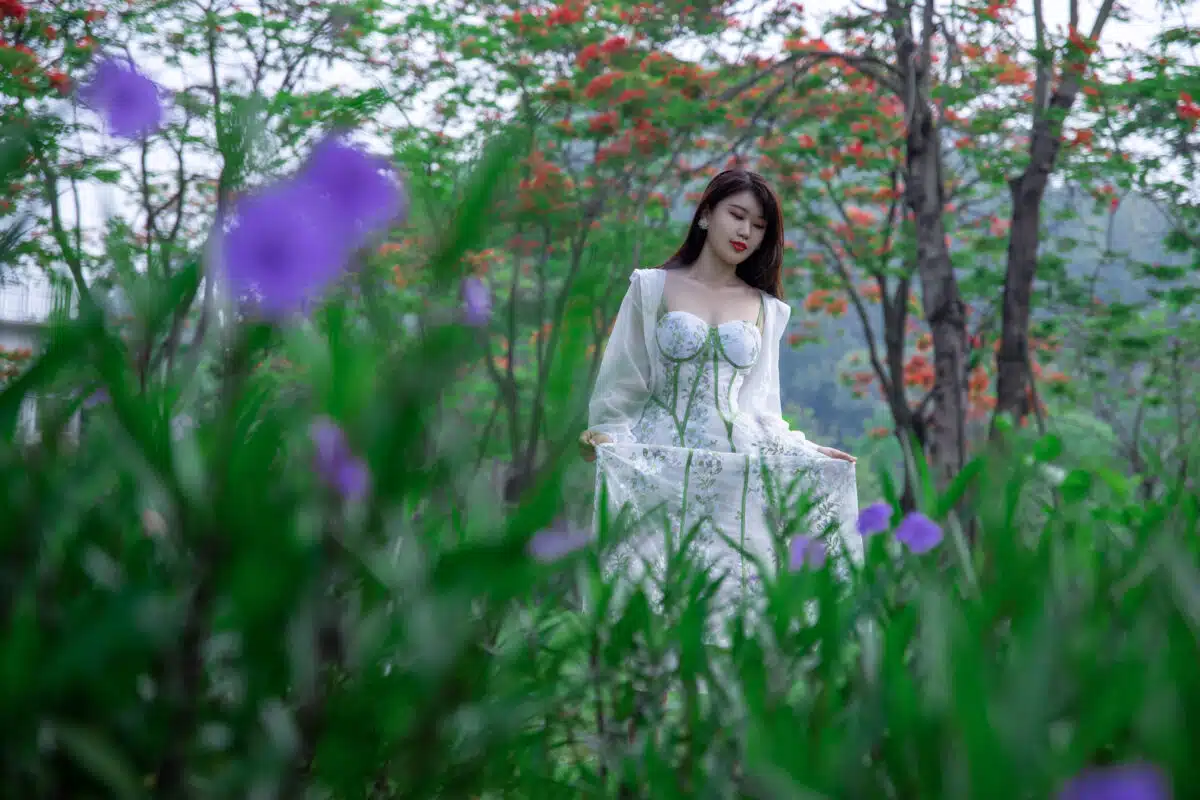
“Spiritual Flowers” by William Henry Holcombe
In every human heart there grows
A sister pair of fadeless flowers ;
Truth is the Lily-Love the Rose
Transplanted from celestial bowers.
“Tis watchful Duty’s gentle care,
To keep them ever in her sight ;
To feed them on the beams of air,
And shield them from the dews of night.
And when they’ve filled the little sphere
To earthly joys and sorrows given,
Commissioned Angels will appear,
And bear the exiles back to heaven.
“Love In Dreams” by John Addington Symonds
Love hath his poppy-wreath,
Not Night alone.
I laid my head beneath
Love’s lilied throne:
Then to my sleep he brought
This anodyne—
The flower of many a thought
And fancy fine:
A form, a face, no more;
Fairer than truth;
Adream from death’s pale shore;
The soul of youth :
A dream so dear, so deep,
All dreams above,
That still I pray to sleep—
Bring Love back, Love!
“Truth Doth Truth Deserve” by Philip Sidney
Who doth desire that chaste his wife should be,
First be he true, for truth doth truth deserve :
Then such be he as she his worth may see,
And one man still credit with her preserve.
Not toying kind, nor causelessly unkind;
Not stirring thoughts, nor yet denying right;
Not spying faults, nor in plain errors blind;
Never hard hand, nor ever reins too light.
As far from want, as far from vain expense
(The one doth force, the latter doth entice) ;
Allow good company, but keep from thence
All filthy mouths that glory in their vice.
This done, thou hast no more, but leave the rest
To virtue, fortune, time, and woman’s breast.

“Sonnets. I- St. Augustine and Monica” by Charles Tennyson Turner
When Monica’s young son had felt her kiss—
Her weeping kiss— for years, her sorrows flow’d
At last into his wilful blood; he owed
To her his after-life of truth and bliss:
And her own joy, what words, what thoughts could paint!
When o’er his soul, with sweet constraining force,
Came Penitence-a fusion from remorse
And made her boy a glorious Christian saint.
Oh ye, who tend the young through doubtful years
Along the busy path from birth to death,
Parents and friends! forget not in your fears
The secret strength of prayer, the holy breath
That swathes your darlings! think how Austin’s faith
Rose like a star upon his mother’s tears!
“Epigrams” by Samuel Taylor Coleridge
VII.
TO A PROUD PARENT.
Thy babes ne’er greet thee with the father’s name;
‘My Lud!’ they lisp. Now whence can this arise?
Perhaps their mother feels an honest shame
And will not teach her infant to tell lies.
“Sonnet III” by Alice and Phoebe Cary
Look once again! yet mourn in holy trust,
Near the still Presence softly, softly tread,
Before the dimness of the closing dust
Soils the yet lingering beauty of the dead.
Look on the silent lip, whence oft hath flowed
Such living truth as man hath seldom taught,
And the sereneness of that brow that glowed
Earnest in life with pure and eloquent thought!
How silver-white has grown his reverend hair,
Serving his Master in the way of truth:
For him, an age of active love and prayer
Fulfilled the beautiful promise of his youth;
And what a triumph-hour is death to those
Faithful in life, yet happy in its close!
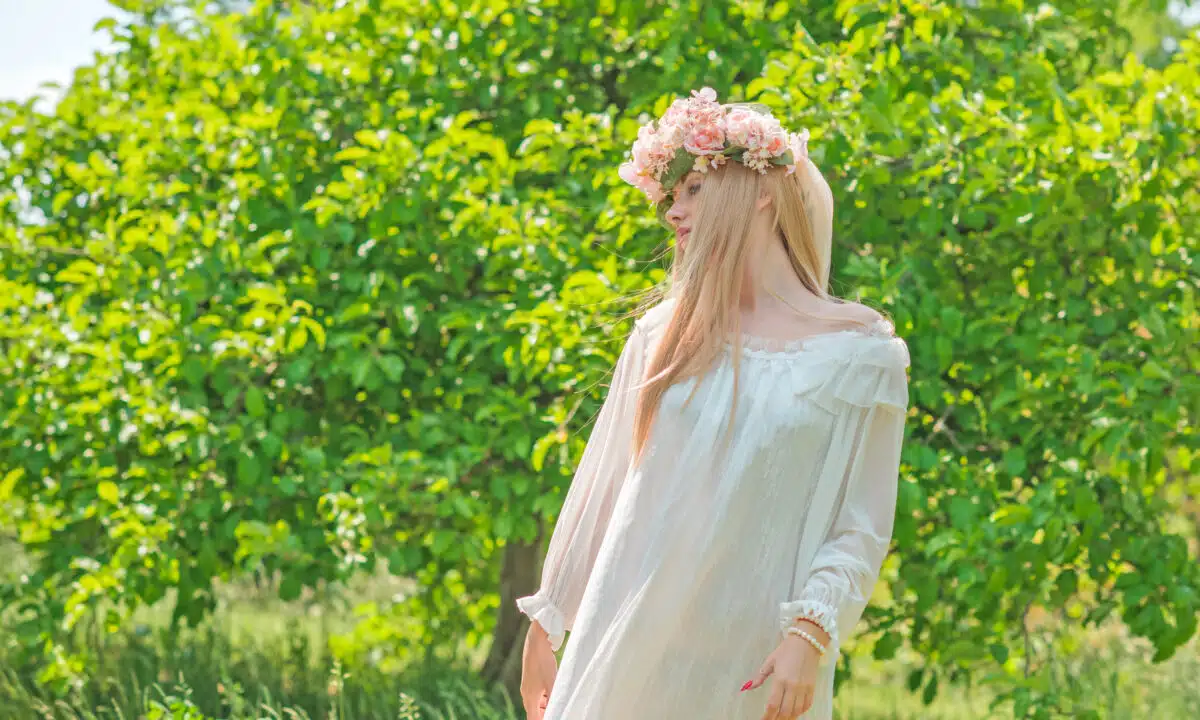
“To ——” by Edgar Allan Poe
The bowers whereat, in dreams, I see
The wantonest singing birds,
Are lips—and all thy melody
Of lip-begotten words—
Thine eyes, in Heaven of heart enshrined
Then desolately fall,
O God! on my funereal mind
Like starlight on a pall—
Thy heart—thy heart!—I wake and sigh,
And sleep to dream till day
Of the truth that gold can never buy—
Of the baubles that it may.
“A Dream” by Edgar Allan Poe
In visions of the dark night
I have dreamed of joy departed—
But a waking dream of life and light
Hath left me broken-hearted.
Ah! what is not a dream by day
To him whose eyes are cast
On things around him with a ray
Turned back upon the past?
That holy dream—that holy dream,
While all the world were chiding,
Hath cheered me as a lovely beam,
A lonely spirit guiding.
What though that light, thro’ storm and night,
So trembled from afar—
What could there be more purely bright
In Truth’s day star?
“To seem the stranger lies my lot, my life” by Gerard Manley Hopkins
To seem the stranger lies my lot, my life
Among strangers. Father and mother dear,
Brothers and sisters are in Christ not near
And he my peace my parting, sword and strife.
England, whose honour O all my heart woos, wife
To my creating thought, would neither hear
Me, were I pleading, plead nor do I: I weary
of idle a being but by where wars are rife.
I am in Ireland now; now I am at a thírd
Remove. Not but in all removes I can
Kind love both give and get. Only what word
Wisest my heart breeds dark heaven’s baffling ban
Bars or hell’s spell thwarts. This to hoard unheard,
Heard unheeded, leaves me a lonely began.
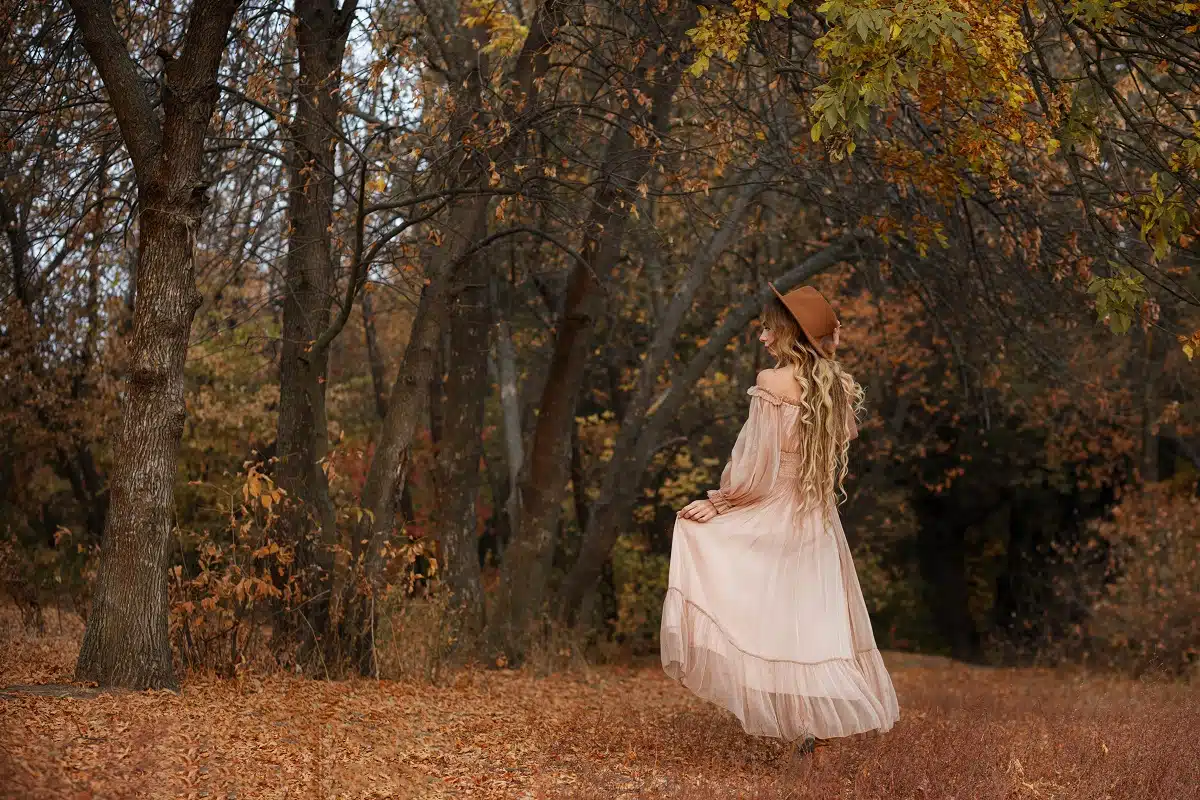
“The Betrayal” by Anonymous
My soul is in the yellow leaf,
For Falsehood’s blight hath seared my breast;
Where Hope sat smiling on my brow,
Pale Grief, with shadowy finger, now
Her gloomy lines hath prest!
My soul is in the yellow leaf,
And Love betrayed makes Autumn there!
But, though stern Memory’s hand hath waked
The lingering fires that Time hath slaked,
I yield not to Despair!
Famous Poems About Truth and Lies
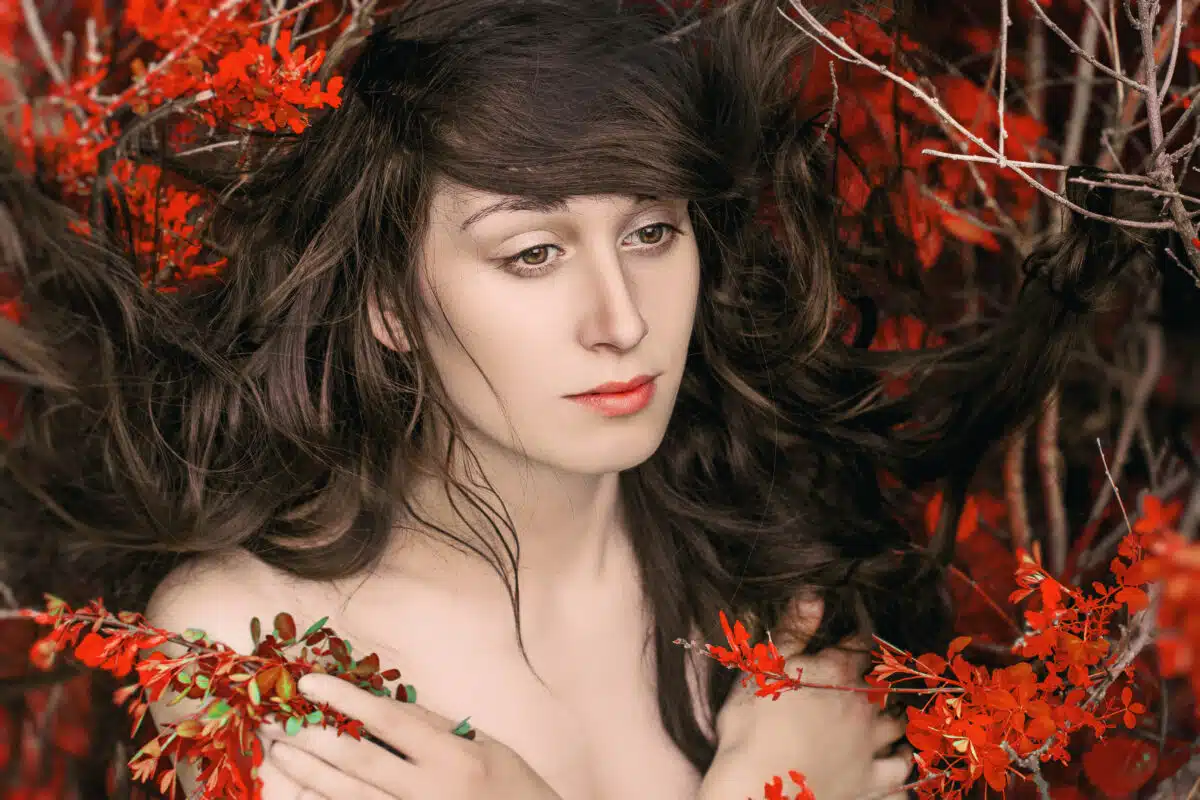
“I Wish I Was By That Dim Lake” by Thomas Moore
I wish I was by that dim Lake,
Where sinful souls their farewell take
Of this vain world, and half-way lie
In death’s cold shadow, ere they die.
There, there, far from thee,
Deceitful world, my home should be;
Where, come what might of gloom and pain,
False hope should ne’er deceive again.
The lifeless sky, the mournful sound
of unseen waters falling round;
The dry leaves, quiv’ring o’er my head,
Like man, unquiet even when dead!
These, ay, these shall wean
My soul from life’s deluding scene,
And turn each thought, o’ercharged with gloom,
Like willows, downward toward the tomb.
As they, who to their couch at night
Would win repose, first quench the light,
So must the hopes, that keep this breast
Awake, be quenched, ere it can rest.
Cold, cold, this heart must grow,
Unmoved by either joy or wo,
Like freezing founts, where all that’s thrown
Within their current turns to stone.
“False” by Ella Wheeler Wilcox
False! Good God, I am dreaming!
No, no, it never can be–
You who are so true in seeming,
You, false to your vows and me?
My wife and my fair boy’s mother
The star of my life–my queen–
To yield herself to another
Like some light Magdalene!
Proofs! what are proofs–I defy them!
They never can shake my trust;
If you look in my face and deny them
I will trample them into the dust.
For whenever I read of the glory
Of the realms of Paradise,
I sought for the truth of the story
And found it in your sweet eyes.
Why, you are the shy young creature
I wooed in her maiden grace;
There was purity in each feature,
And my heaven I found in your face.
And, “not only married but mated,”
I would say in my pride and joy;
And our hopes were all consummated
When the angels gave us our boy.
Now you could not blot that beginning
So beautiful, pure and true,
With a record of wicked sinning
As a common woman might do.
Look up in your old frank fashion,
With your smile so free from art;
And say that no guilty passion
Has ever crept into your heart.
How pallid you are, and you tremble!
You are hiding your face from view!
“Tho’ a sinner, you cannot dissemble”–
My God! then the tale is true?
True and the sun above us
Shines on in the summer skies?
And men say the angels love us,
And that God is good and wise.
Yet he lets a wanton thing like you
Ruin my home and my name!
Get out of my sight ere I strike you
Dead in your shameless shame!
No, no, I was wild, I was brutal;
I would not take your life,
For the efforts of death would be futile
To wipe out the sin of a wife.
Wife–why, that word has seemed sainted,
I uttered it like a prayer.
And now to think it is tainted–
Christ! how much we can bear!
“Slay you!” my boy’s stained mother–
Nay, that would not punish, or save;
A soul that has outraged another
Finds no sudden peace in the grave.
I will leave you here to remember
The Eden that was your own,
While on toward my life’s December
I walk in the dark alone.
“The Truth” by Francis William Lauderdale Adams
Come then, let us at least know what’s the truth.
Let us not blink our eyes and say
We did not understand; old age or youth
Benumbed our sense or stole our sight away.
It is a lie – just that, a lie – to declare
That wages are the worth of work.
No; they are what the Employer wills to spare
To let the Employee sheer starvation shirk.
They’re the life-pittance Competition leaves,
The least for which brother’ll slay brother.
He who the fruits of this hell-strife receives,
He is a thief, an assassin, and none other!
It is a lie – just that, a lie – to declare
That Rent’s the interest on just gains.
Rent’s the thumb-screw that makes the worker share
With him who worked not the produce of his pains.
Rent’s the wise tax the human tape-worm knows.
The fat he takes; the life-lean leaves.
The holy Landlord is, as we suppose,
Just this – the model of assassin-thieves!
What is the trick the rich-man, then, contrives?
How play my lords their brilliant roles? –
They live on the plunder of our toiling lives,
The degradation of our bodies and souls!

“I Could Explain” by Iris Tree
I could explain
The complicated lore that drags the soul
From what shall profit him
To gild damnation with his choicest gold.
But you
Are poring over precious books and do not hear
Our plaintive, frivolous songs;
For we in stubborn vanity ascend
On ladders insecure,
Toward the tottering balconies
To serenade our painted paramours;
Caught by the lure of dangerous pale hands,
Oblivion’s heavy lids on sleepless eyes
That cheat between unrest and false repose.
And we are haunted
By spectral Joy once murdered in a rage,
Now taking shape of Pleasure,
Disguised in many clothes and skilful masks.
I could disclose
The truth that hangs between our lies
And jostles sleep to semi-consciousness;
Truth, that stings like nettles
Our frail hands dare not pluck
From out our garden’s terraced indolence.
We are not happy,
And you make us dumb with loving hands
Reproachful on our lips.
Nor can we sob our sorrows on your breast,
For we have bartered diamonds for glass,
Our tears for smiles,
Eternity for now.
“Deceitful Calm” by Ella Wheeler Wilcox
The winds are still; the sea lies all untroubled
Beneath a cloudless sky; the morn is bright,
Yet, Lord, I feel my need of Thee is doubled;
Come nearer to me in this blaze of light;
The night must fall, -the storm will burst at length.
Oh! give me strength.
So well, so well, I know the treacherous seeming
Of days like this; they are too heavenly fair.
Those waves that laugh like happy children dreaming,
Are mighty forces brewing some despair
For thoughtless hearts, and ere the hour of need,
Let mine take heed.
Joy cannot last; it must give place to sorrow
As certainly as solar systems roll.
I would not wait till that time comes to borrow
The strength prayer offers to a suffering soul.
Here in the sunlight -yet undimmed by shade,
I cry for aid.
I dare not lightly drain the cup of pleasure,
Though Thine the hand that proffers me the draught.
Such bitter lees lie lower in the measure,
I shall need courage, ere the potion’s quaffed;
Then strengthen me before that time befall,
To drink the gall.
I need Thee in my joys and my successes,
To make me humble, grateful, and not vain.
I need Thee when the weight of sorrow presses
The tortured heart that cries aloud in pain,
So close great pleasures and great anguish lie.
Lord, Lord, come nigh.
“Lying” by Thomas Moore
I do confess, in many a sigh,
My lips have breath’d you many a lie,
And who, with such delights in view,
Would lose them for a lie or two?
Nay — look not thus, with brow reproving:
Lies are, my dear, the soul of loving!
If half we tell the girls were true,
If half we swear to think and do,
Were aught but lying’s bright illusion,
The world would be in strange confusion!
If ladies’ eyes were, every one,
As lovers swear, a radiant sun,
Astronomy should leave the skies,
To learn her lore in ladies’ eyes!
Oh no! — believe me, lovely girl,
When nature turns your teeth to pearl,
Your neck to snow, your eyes to fire,
Your yellow locks to golden wire,
Then, only then, can heaven decree,
That you should live for only me,
Or I for you, as night and morn,
We’ve swearing kiss’d, and kissing sworn.
And now, my gentle hints to clear,
For once, I’ll tell you truth, my dear!
Whenever you may chance to meet
A loving youth, whose love is sweet,
Long as you’re false and he believes you,
Long as you trust and he deceives you,
So long the blissful bond endures;
And while he lies, his heart is yours:
But, oh! you’ve wholly lost the youth
The instant that he tells you truth!
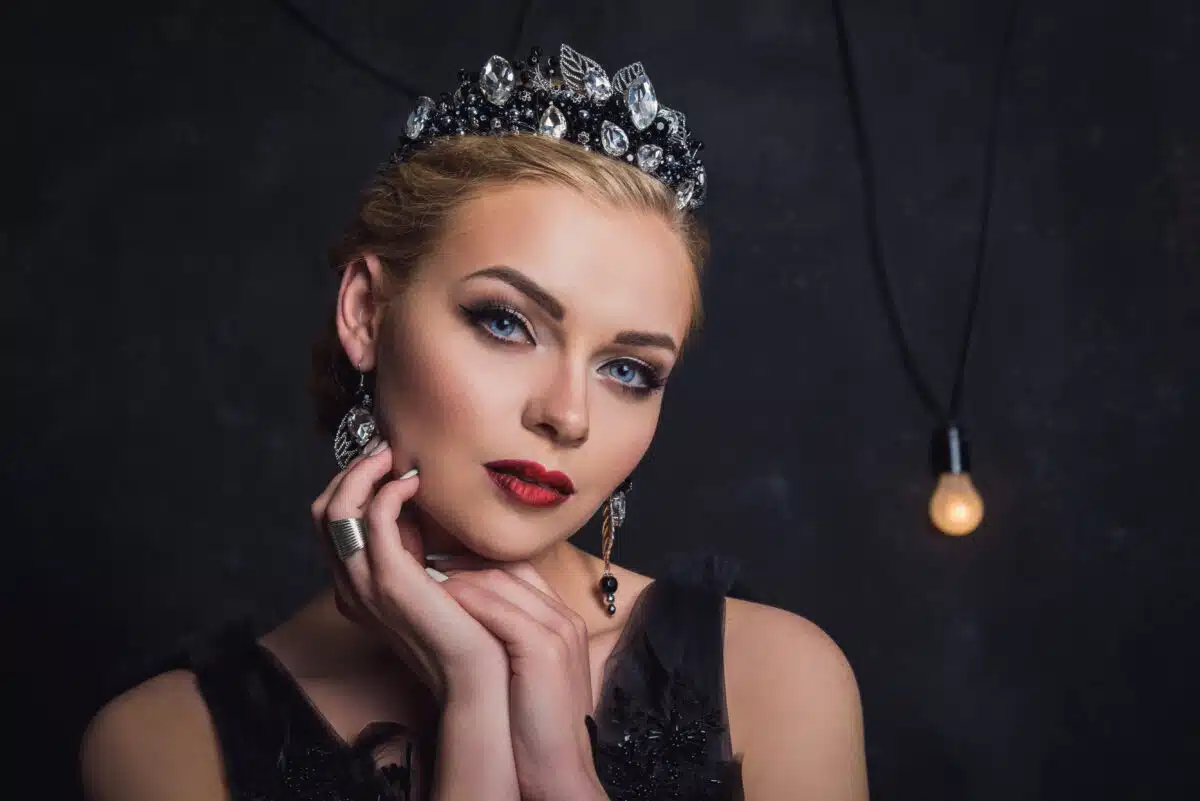
“To The Lady Of My Heart” by William Motherwell
They oft have told me that deceit
Lies hid in dimpled smiles,
But eyes so chaste and lips so sweet
Conceal not wanton wiles!
I’ll trust thee, lady! —To deceive,
Or guileful tale to speak,
Was never fashioned I believe
The beauty of thy cheek!
Yes, I will trust the azure eye
That thrilled me with delight,
The loving load-star of a sky
Which erst was darkest night.
Ever, dear maid, in weal or wo,
In gladness and in sorrow,
Hand clasped in hand, we’ll forward go ,
Both eventide and morrow!
“The Lie” by Sir Walter Raleigh
Go, Soul, the body’s guest,
Upon a thankless arrant:
Fear not to touch the best;
The truth shall be thy warrant:
Go, since I needs must die,
And give the world the lie.
Say to the court, it glows
And shines like rotten wood;
Say to the church, it shows
What’s good, and doth no good:
If church and court reply,
Then give them both the lie.
Tell potentates, they live
Acting by others’ action;
Not loved unless they give,
Not strong, but by a faction:
If potentates reply,
Give potentates the lie.
Tell men of high condition,
That manage the estate,
Their purpose is ambition,
Their practice only hate:
And if they once reply,
Then give them all the lie.
Tell them that brave it most,
They beg for more by spending,
Who, in their greatest cost,
Seek nothing but commending:
And if they make reply,
Then give them all the lie.
Tell zeal it wants devotion;
Tell love it is but lust;
Tell time it is but motion;
Tell flesh it is but dust:
And wish them not reply,
For thou must give the lie.
Tell age it daily wasteth;
Tell honour how it alters;
Tell beauty how she blasteth;
Tell favour how it falters:
And as they shall reply,
Give every one the lie.
Tell wit how much it wrangles
In tickle points of niceness;
Tell wisdom she entangles
Herself in over-wiseness:
And when they do reply,
Straight give them both the lie.
Tell physic of her boldness;
Tell skill it is pretension;
Tell charity of coldness;
Tell law it is contention:
And as they do reply,
So give them still the lie.
Tell fortune of her blindness;
Tell nature of decay;
Tell friendship of unkindness;
Tell justice of delay;
And if they will reply,
Then give them all the lie.
Tell arts they have no soundness,
But vary by esteeming;
Tell schools they want profoundness,
And stand too much on seeming:
If arts and schools reply,
Give arts and schools the lie.
Tell faith it’s fled the city;
Tell how the country erreth;
Tell, manhood shakes off pity;
Tell, virtue least preferreth:
And if they do reply,
Spare not to give the lie.
So when thou hast, as I
Commanded thee, done blabbing,—
Although to give the lie
Deserves no less than stabbing,—
Stab at thee he that will,
No stab the soul can kill.
From “Midnight” by Alexander H. Japp
II.
“Midnight-and joyless June gone by,
And from the deluged park
The cuckoo of a worse July
Is calling thro’ the dark :
But thou art silent underground,
And o’er thee streams the rain,
True poet, surely to be found
When Truth is found again.

“A Woman’s Last Word” by Robert Browning
Let’s contend no more, Love,
Strive nor weep:
All be as before, Love,
-Only sleep!
What so wild as words are?
I and thou
In debate, as birds are,
Hawk on bough!
See the creature stalking
While we speak!
Hush and hide the talking,
Cheek on cheek!
What so false as truth is,
False to thee?
Where the serpent’s tooth is
Shun the tree
Where the apple reddens
Never pry
Lest we lose our Edens ,
Eve and I!
Be a god and hold me
With a charm!
Be a man and fold me
With thine arm!
Teach me, only teach, Love!
As I ought
I will speak thy speech, Love,
Think thy thought
Meet, if thou require it,
Both demands,
Laying flesh and spirit
In thy hands.
That shall be to-morrow
Not to-night:
I must bury sorrow
Out of sight :
-Must a little weep, Love.
(Foolish me!)
And so fall asleep, Love
Loved by thee.
“True Woman” by William Motherwell
No quaint conceit of speech,
No golden, minted phrase—
Dame Nature needs to teach
To echo Woman’s praise ;
Pure love and truth unite
To do thee, Woman, right !
She is the faithful mirror
Of thoughts that brightest be—
Of feelings without error,
Of matchless constancie ;
When art essays to render
More glorious Heaven’s bow—
To paint the virgin splendour
Of fresh-fallen mountain snow—
New fancies will I find,
To laud true Woman’s mind.
No words can lovelier make
Virtue’s all-lovely name,
No change can ever shake
A woman’s virtuous fame :
The moon is forth anew,
Though envious clouds endeavour
To screen her from our view—
More beautiful than ever :
So, through detraction’s haze,
True Woman shines alwaies.
The many-tinted rose ,
Of gardens is the queen,
The perfumed Violet knows
No peer where she is seen
The flower of woman-kind
Is aye a gentle mind.
“False Prophets” by George MacDonald
Would-be prophets tell us
We shall not re-know
Them that walked our fellows
In the ways below!
Smoking, smouldering Tophets
Steaming hopeless plaints!
Dreary, mole-eyed prophets!
Mean, skin-pledging saints!
Knowing not the Father
What their prophecies!
Grapes of such none gather,
Only thorns and lies.
Loving thus the brother,
How the Father tell?
Go without each other
To your heavenly hell!
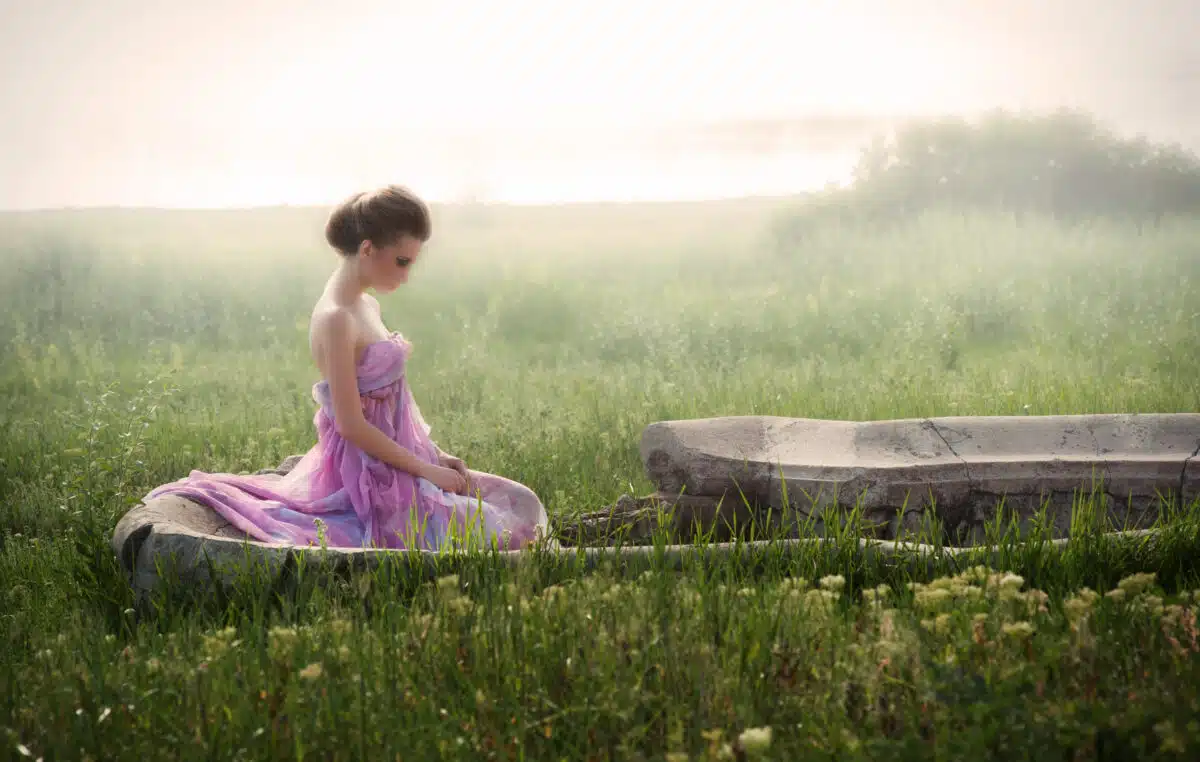
From “The False Knight’s Tragedy” by John Clare
A false knight wooed a maiden poor,
And his high halls left he
To stoop in at her cottage door,
When night left none to see.
And, well-a-day, it is a tale
For pity too severe–
A tale would melt the sternest eye,
And wake the deafest ear.
He stole her heart, he stole her love,
‘T was all the wealth she had;
Her truth and fame likewise stole he,
From “A Shropshire Lad” by A. E. Housman
XXXIII
If truth in hearts that perish
Could move the powers on high,
I think the love I bear you
Should make you not to die.
Sure, sure, if stedfast meaning,
If single thought could save,
The world might end to-morrow,
You should not see the grave.
This long and sure-set liking,
This boundless will to please,
-Oh, you should live for ever
If there were help in these.
But now, since all is idle,
To this lost heart be kind,
Ere to a town you journey
Where friends are ill to find.
“The Disguise” by Walter De La Mare
Why in my heart, O Grief,
Dost thou in beauty hide?
Dead is my well-content,
And buried deep my pride.
Cold are their stones, beloved,
To hand and side.
The shadows of even are gone,
Shut are the day’s clear flowers,
Now have her birds left mute
Their singing bowers,
Lone shall we be, we twain,
In the night hours.
Thou with thy cheek on mine,
And dark hair loosed, shall see
Take the far stars for fruit
The cypress tree,
And in the yew’s black
Shall the moon be.
We will tell no old tales,
Nor heed if in wandering air
Die a lost song of love
Or the once fair;
Still as well-water be
The thoughts we share!
And, while the ghosts keep
Tryst from chill sepulchres,
Dreamless our gaze shall sleep,
And sealed our ears;
Heart unto heart will speak,
Without tears.
O, thy veiled, lovely face –
Joy’s strange disguise –
Shall be the last to fade
From these rapt eyes,
Ere the first dart of daybreak
Pierce the skies.

“Modern Love: XVII” by George Meredith
At dinner, she is hostess, I am host.
Went the feast ever cheerfuller? She keeps
The Topic over intellectual deeps
In buoyancy afloat. They see no ghost.
With sparkling surface-eyes we ply the ball:
It is in truth a most contagious game:
‘Hiding the skeleton,’ shall be its name.
Such play as this, the devils might appal!
But here’s the greater wonder; in that we
Enamoured of an acting naught can tire,
Each other, like true hypocrites, admire;
Warm-lighted looks, Love’s ephemoerioe,
Shoot gaily o’er the dishes and the wine.
We waken envy of our happy lot.
Fast, sweet, and golden, shows the marriage-knot.
Dear guests, you now have seen Love’s corpse-light shine
From “A Shropshire Lad” by A. E. Housman
XXX
Others, I am not the first,
Have willed more mischief than they durst:
If in the breathless night I too
Shiver now, ’tis nothing new.
More than I, if truth were told,
Have stood and sweated hot and cold,
And through their reins in ice and fire
Fear contended with desire.
Agued once like me were they,
But I like them shall win my way
Lastly to the bed of mould
Where there’s neither heat nor cold.
But from my grave across my brow
Plays no wind of healing now,
And fire and ice within me fight
Beneath the suffocating night.
From “Lights And Shadows” by Frederick Tennyson
Their blessed voices made such deep accord
That twin seem’d one-alas! that very morn
Truth changed to Slander, Love was shrunk to Scorn;
And they were sunder’d by an idle Lord:
A jealous Fury sow’d their hearts with sighs;
No more they sate, or walk’d, or sang together;
Their very beauty died within their eyes,
Like timeless blossoms which the frost winds wither!
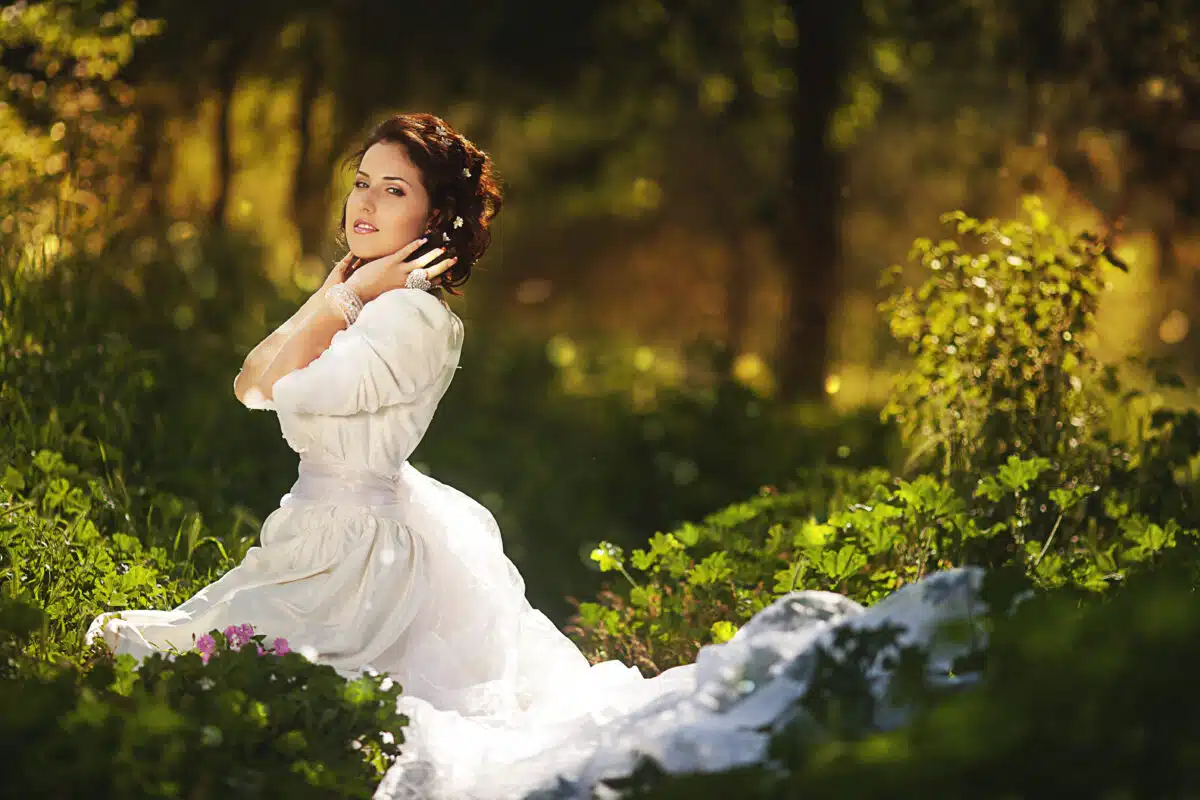
“The Worth of Hours” by Lord Houghton
Believe not that your inner eye
Can ever in just measure try
The worth of Hours as they go by:
For every man’s weak self, alas!
Makes him to see them, while they pass,
As through a dim or tinted glass:
But if in earnest care you would
Mete out to each its part of good,
Trust rather to your after-mood.
Those surely are not fairly spent
That leave your spirit bowed and bent
In sad unrest and ill- content:
And more, though free from seeming harm,
You rest from toil of mind or arm,
Or slow retire from Pleasure’s charm,
If then a painful sense comes on
Of something wholly lost and gone,
Vainly enjoyed, or vainly done, —
Of something from your being’s chain
Broke off, nor to be linked again
By all mere Memory can retain, — ·
Upon your heart this truth may rise,
Nothing that altogether dies
Suffices man’s just destinies:
So should we live, that every Hour
May die as dies the natural flower,
A self-reviving thing of power;
That every Thought and every Deed
May hold within itself the seed
Of future good and future meed;
Esteeming Sorrow, whose employ
Is to develope not destroy,
Far better than a barren Joy.
“To The Spirit Of Truth” by Alice and Phoebe Cary
Bright-winged spirit of the sky,
Beautiful and holy,
Pass thou not, neglectful by
The despised and lowly.
Where the mourner by the tomb
Sits, the dark unheeding,
With the white down of thy plume
Bind the heart from bleeding.
Like the sweet light of the stars,
Pierce the gloomiest prison,
Leaving broken bolts and bars
Cerements of the risen.
Where along the furrowed soil
Corn and rice are springing,
Let us hear the child of toil
At his labour singing.
Though the downy lip of youth
Whiten with vain terror,
With thy sacred wand, O Truth!
Smite gray-bearded Error.
Right in Superstition’s frown
Be his doom allotted,
And to lower the coffin down,
Hangman’s cords be knotted.
Where the progeny of sin
Hold their horrid revels,
In the Master’s name go in,
And rebuke the devils.
Surely the “good time” is nigh
For thy wide diffusion;
Else God’s promise is a lie,
And our faith, delusion.
From “Blight” by Ralph Waldo Emerson
Give me truths;
For I am weary of the surfaces,
And die of inanition. If I knew
Only the herbs and simples of the wood,
Rue, cinquefoil, gill, vervain and agrimony,
Blue-vetch and trillium, hawkweed, sassafras,
Milkweeds and murky brakes, quaint pipes and sundew,
And rare and virtuous roots, which in these woods
Draw untold juices from the common earth,
Untold, unknown, and I could surely spell
Their fragrance, and their chemistry apply
By sweet affinities to human flesh,
Driving the foe and stablishing the friend,—
O, that were much, and I could be a part
Of the round day, related to the sun
And planted world, and full executor
Of their imperfect functions.
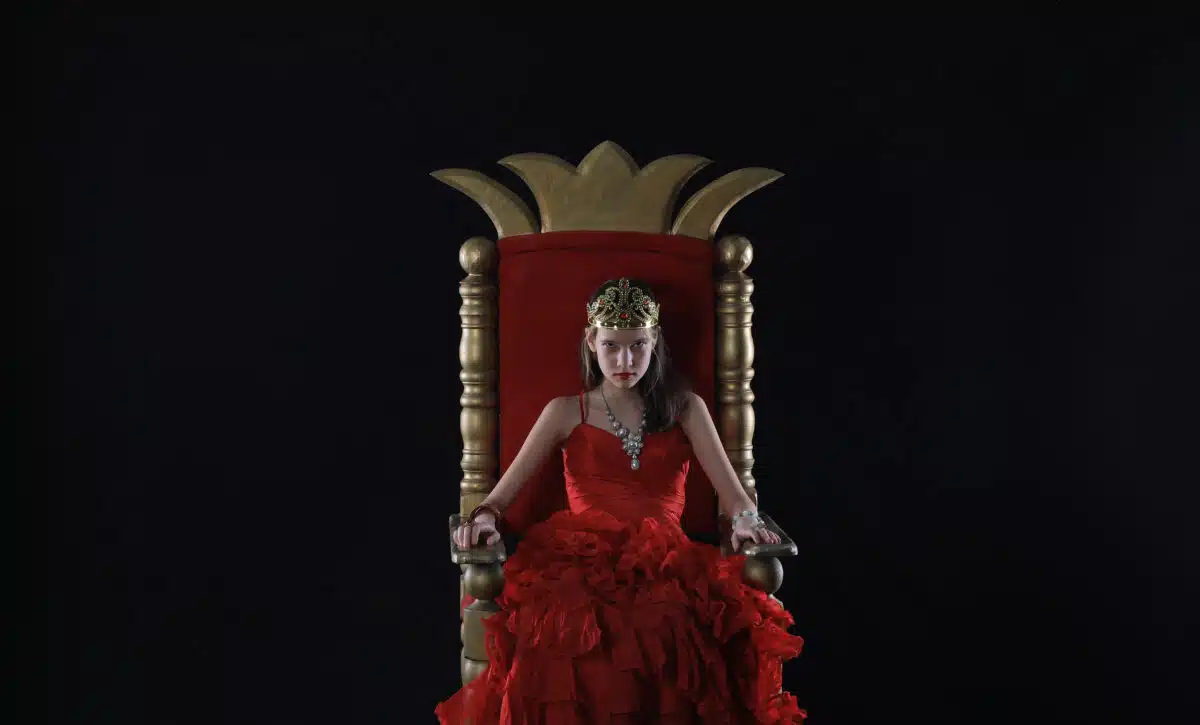
From “On Reading Dr. Young’s Satire Called The Universal Passion, 1726” by Jonathan Swift
If there be truth in what you sing,
Such godlike virtues in the king;
A minister so fill’d with zeal
And wisdom for the commonweal;
If he who in the chair presides,
So steadily the senate guides;
If others, whom you make your theme,
Are seconds in the glorious scheme;
If every peer whom you commend,
To worth and learning be a friend;
If this be truth, as you attest,
What land was ever half so blest!
Poems About Truth and Love

“Rosebud And Sunbeam” by William Henry Holcombe
A rosebud unfolded its leaves to the view,
All crimson with beauty, all brightened with dew,
Like a soul which has fallen from happier spheres,
Yet smiling with hope through its penitent tears.
A Sunbeam came down to the heart of the Rose,
Like a thought which illumines the mind where it glows ;
Like an angel come down from the bright world of bliss
To commune with some beautiful spirit in this.
When homeward the Sunbeam retreated at even,
The soul of the Flower went as fragrance to heaven,
As the heart which has cherished some Truth from above,
Ascends with that Truth to the regions of Love.
From “Endymion” by John Keats
Ah, Scylla fair!
Why did poor Glaucus ever-ever dare
To sue thee to his heart? Kind stranger-youth!
I lov’d her to the very white of truth,
And she would not conceive it. Timid thing!
She fled me swift as sea-bird on the wing,
Round every isle, and point, and promontory,
From where large Hercules wound up his story
Far as Egyptian Nile. My passion grew
The more, the more I saw her dainty hue
Gleam delicately through the azure clear:
Until ‘ twas too fierce agony to bear;
And in that agony, across my grief
It flash’d , that Circe might find some relief—
Cruel enchantress!
“Love Me Alone” by William Henry Holcombe
The mildew has blighted the blossom,
Misfortunes have come like the tide,
And all the false friends of my bosom
Have fled in distrust from my side;
Sweet girl whom I love so sincerely,
Come, bend your bright eyes on my own,
And with accents I treasure so dearly
O say you will love me alone.
I vowed, and I thought they believed me,
They vowed, and I swore to their truth;
How many, alas ! have deceived me,
And broken the pledges of youth!
But, Love ! your caresses can make me
Forget every pang I have known,
And I care not what others forsake me
If you will but love me alone.
Though Hope on the brink of perdition
Stands palsied in silent affright,
Though the star of my early ambition
May sink in the shadows of night ;
Life’s Sun will continue to shine, Love!
As bright as it ever has shone,
For you’ll bend your sweet eyes upon mine, Love!
And say that you love me alone.
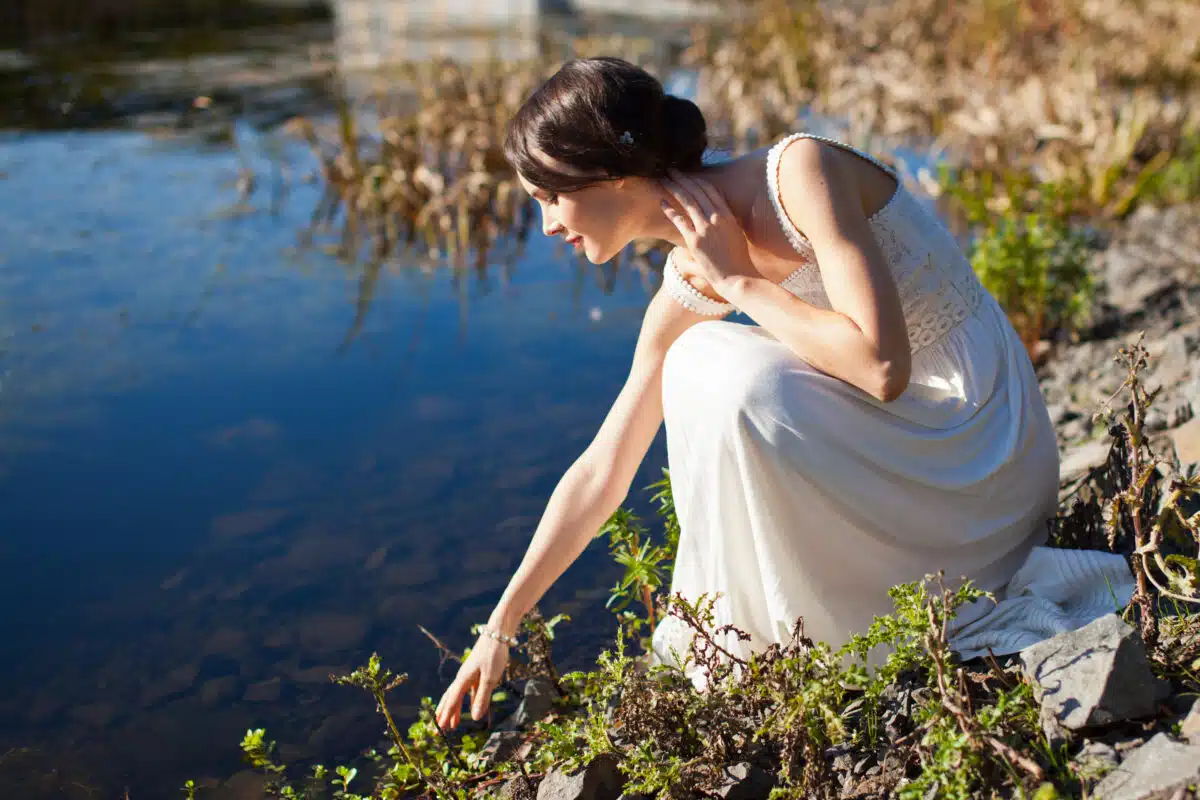
From “Isabella” by John Keats
Ah! wherefore all this wormy circumstance?
Why linger at the yawning tomb so long?
O for the gentleness of old Romance,
The simple plaining of a minstrel’s song!
Fair reader, at the old tale take a glance,
For here, in truth, it doth not well belong
To speak-0 turn thee to the very tale,
And taste the music of that vision pale.
With duller steel than the Perséan sword
They cut away no formless monster’s head,
But one, whose gentleness did well accord
With death, as life. The ancient harps have said,
Love never dies, but lives, immortal Lord:
If Love impersonate was ever dead,
Pale Isabella kiss’d it, and low moan’d .
‘Twas love; cold , -dead indeed , but not dethroned.
“Lines To A Young Friend” by William Henry Holcombe
In every material thing which we see
Is something ethereal not to be seen;
There are Nymphs in the water and Sylphs in the tree,
And summer-night Fairies that dance on the green.
The caskets thus sealed open not to our call ,
Nor give to our yearnings their mysteries up,
Yet spiritual essences live in them all,
Like dew in the flower, like wine in the cup.
The rose as it blossoms, the star as it shines,
The magic of music, the graces of youth,
Aurora and spring- times, are tokens and signs
Of the presence of Angels of Beauty and Truth.
Whilst in the affections that gladden us here
And lead us serenely to pleasures above,
In charity’s sigh, and in pity’s sweet tear,
Are the best of the Angels, the Angels of Love.
O Thou to whose Spirit these lines are addressed,
Whom Nature has dowered with all that she could ,
May thine outer adornment be inwardly blest,
And the Beautiful prove but a shrine for the Good!
From “Agathe” by William Henry Holcombe
ELPENOR.
What truth is in it all, what falsity,
What source is claimed, what issues are involved,
I can not tell, all-all is dark as yet.
But I would hold my spirit well prepared;
And so I come with offerings to our Goddess,
To beg her favor and her wise protection,
To keep my heart serene amid all tumult,
My judgment clear, my loyalty to truth,
My love of country unimpeachable.
I would not draw my sword but for true cause,
And having drawn it, would not put it up
Till Mercy bids and Justice shall approve.
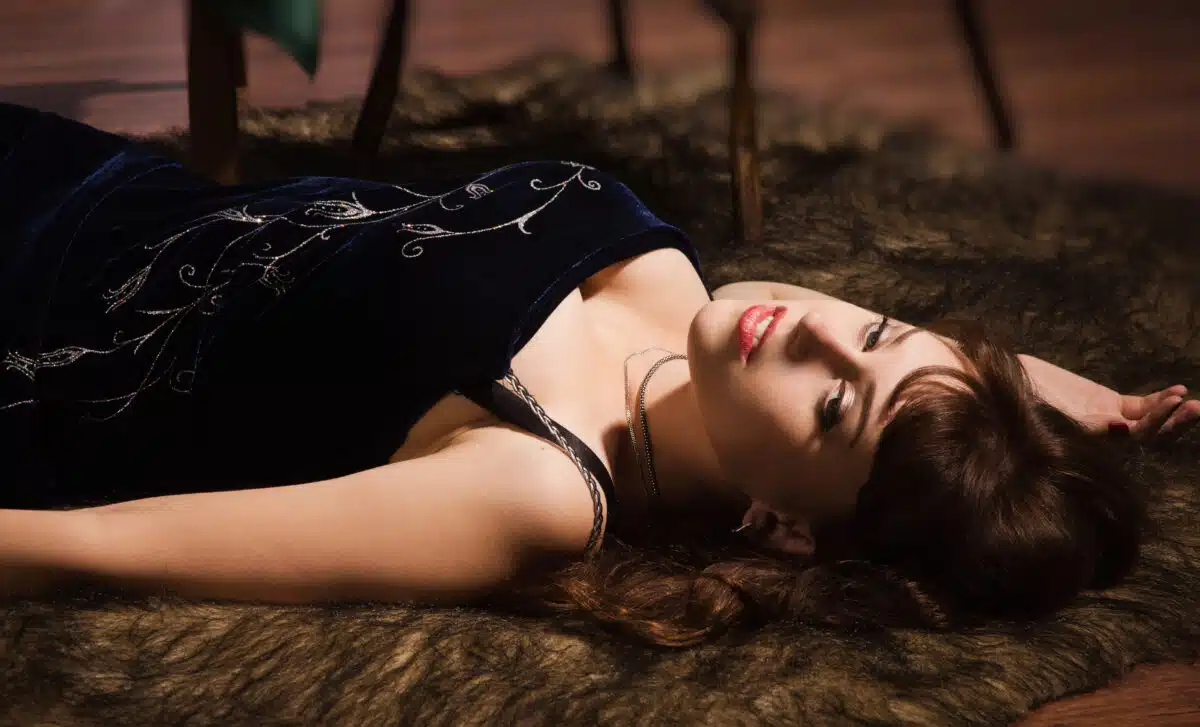
“So Sweet Love Seemed” by Robert Bridges
So sweet love seemed that April morn,
When first we kissed beside the thorn,
So strangely sweet, it was not strange
We thought that love could never change.
But I can tell-let truth be told
That love will change in growing old;
Though day by day is naught to see,
So delicate his motions be.
And in the end ’twill come to pass
Quite to forget what once he was,
Nor even in fancy to recall
The pleasure that was all in all.
His little spring, that sweet we found,
So deep in summer floods is drowned,
I wonder, bathed in joy complete,
How love so young could be so sweet.
From “Love Me Little, Love Me Long” by Anonymous
If thou lovest me too much,
‘Twill not prove as true a touch ;
Love me little more than such,—
For I fear the end.
I’m with little well content,
And a little from thee sent
Is enough, with true intent
To be steadfast, friend.
Say thou lovest me, while thou live
I to thee my love will give,
Never dreaming to deceive
While that life endures ;
Nay, and after death, in sooth,
I to thee will keep my truth ,
As now when in my May of youth:
This my love assures.
“The Rose And Thorn” by Paul Hamilton Hayne
She’s loveliest of the festal throng
In delicate form and Grecian face, –
A beautiful, incarnate song,
A marvel of harmonious grace;
And yet I know the truth I speak:
From those gay groups she stands apart,
A rose upon her tender cheek,
A thorn within her heart.
Though bright her eyes’ bewildering gleams,
Fair tremulous lips and shining hair,
Asomething born of mournful dreams
Breathes round her sad enchanted air;
No blithesome thoughts at hide and seek
From out her dimples smiling start;
If still the rose be on her cheek,
A thorn is in her heart.
Young lover, tossed ‘twixt hope and fear,
Your whispered vow and yearning eyes
Yon marble Clytie pillared near
Could move as soon to soft replies;
Or, if she thrill at words you speak,
Love’s memory prompts the sudden start;
The rose has paled upon her cheek,
The thorn has pierced her heart.

From “Love In Search Of Truth” by William Henry Holcombe
When Love was sovereign Queen alone,
And had no partner to her throne,
She sought one day a great magician
Renowned for power and erudition,
Bearing a portrait in her hand,
And softly gave her high command:
This is my Bridegroom, only he
The child was lost in infancy,
Of birth divine, his name is Truth,
And I have come to seek the youth.
Adjust your mirrors, let me sce
If one who bears the name is he.”
“Too Late” by Dinah Maria Mulock Craik
Could ye come back to me, Douglas, Douglas,
In the old likeness that I knew,
I would be so faithful, so loving, Douglas,
Douglas, Douglas, tender and true.
Never a scornful word should grieve ye,
I’d smile on ye sweet as the angels do:
Sweet as your smile on me shone ever,
Douglas, Douglas, tender and true.
Oh, to call back the days that are not!
My eyes were blinded, your words were few:
Do you know the truth now, up in heaven,
Douglas, Douglas, tender and true?
I never was worthy of you, Douglas;
Not half worthy the like of you:
Now all men beside seem to me like shadows—
I love you, Douglas, tender and true.
Stretch out your hand to me, Douglas, Douglas,
Drop forgiveness from heaven like dew;
As I lay my heart on your dead heart, Douglas,
Douglas, Douglas, tender and true!
“To Mary” by Samuel Bishop
“Thee, Mary, with this ring I wed,
So, fourteen years ago, I said—
Behold another ring ! -” For what?
To wed thee o’er again-why not?”
With that first ring I married Youth,
Grace, Beauty, Innocence, and Truth;
Taste long admired, sense long revered,
And all my Molly then appeared.
If she, by merit since disclosed,
Prove twice the woman I supposed,
I plead that double merit now,
To justify a double vow.
Here then, to-day, (with faith as sure,
With ardor as intense and pure,
As when, amidst the rites divine,
I took thy troth, and plighted mine) ,
To thee, sweet girl, my second ring
A token, and a pledge, I bring;
With this I wed, till death us part,
Thy riper virtues to my heart ;
Those virtues, which, before untried,
The wife has added to the bride;
Those virtues, whose progressive claim,
Endearing wedlock’s very name,
My soul enjoys, my song approves,
For Conscience’ sake, as well as Love’s.
For why? They show me every hour,
Honor’s high thought, Affection’s power,
Discretion’s deed, sound Judgment’s sentence,
And teach me all things-but Repentance.
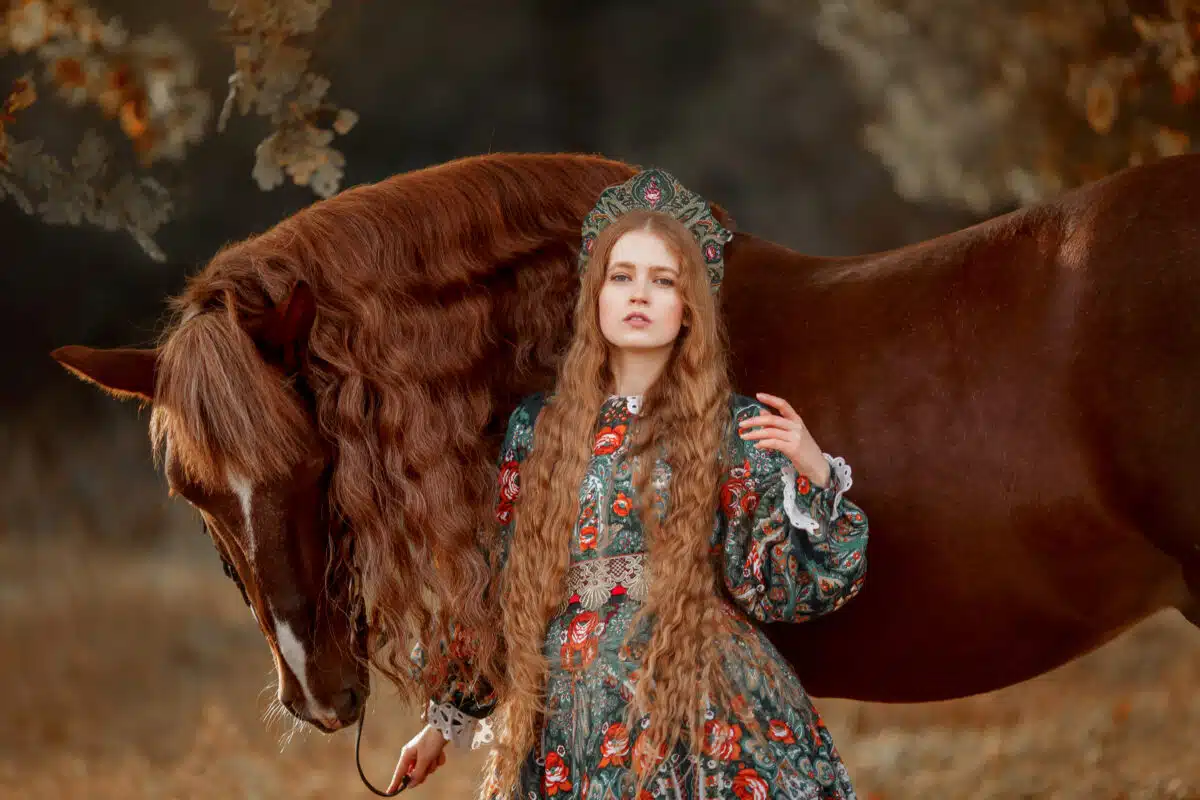
“Loving in truth, and fain in verse my love to show” by Sir Philip Sidney
Loving in truth, and fain in verse my love to show,
That she, dear she, might take some pleasure of my pain,—
Pleasure might cause her read, reading might make her know,
Knowledge might pity win, and pity grace obtain,—
I sought fit words to paint the blackest face of woe;
Studying inventions fine, her wits to entertain,
Oft turning others’ leaves, to see if thence would flow
Some fresh and fruitful showers upon my sun-burned brain.
But words came halting forth, wanting Invention’s stay;
Invention, Nature’s child, fled step-dame Study’s blows;
And others’ feet still seemed but strangers in my way.
Thus, great with child to speak, and helpless in my throes,
Biting my truant pen, beating myself for spite;
Fool, said my Muse to me, look in thy heart, and write.
From “Song” by Raseim Willowby
There was a girl whom I knew well,
And she was rather pretty;
She fell in love, but truth to tell,
Oh! she was much to pity.
“Love In Worldlynesse” by William Motherwell
The gentle heart, the truthful love,
Have flemed this earth and fled to Heaven
The noblest spirits earliest prove
Not Here below, but There above,
Is Hope no shadow —Bliss no sweven!
There was a time, old Poets say,
When the crazed world was in its nonage,
That they who loved were loved alwaye,
With faith transparent as the day,
But this , meseems, was fiction’s coinage.
We cannot mate here as we ought,
With laws opposed to simple feeling;
Professions are, like lutestring, bought,
And worldly ties soon breed distraught,
To end in cold congealing!
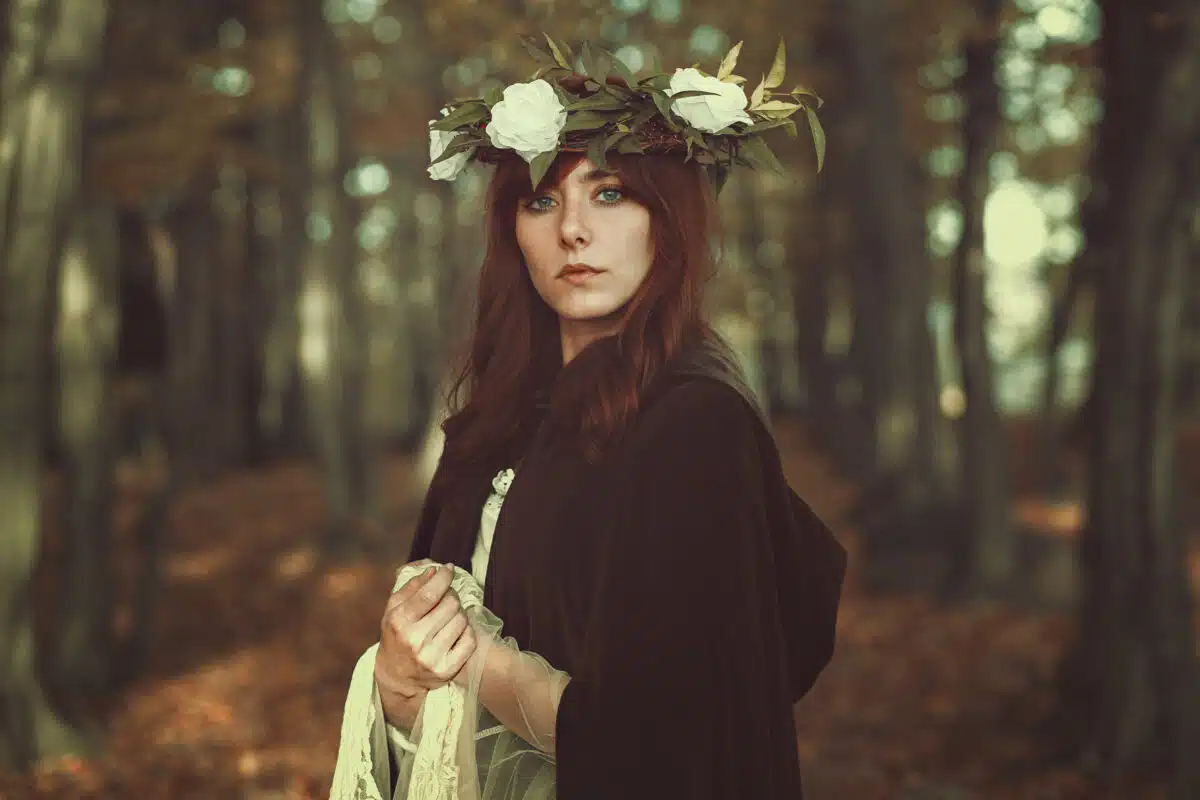
“The Wonder” by Thomas Moore
Come tell me where the maid is found,
Whose heart can love without deceit,
And I will range the world around,
To sigh one moment at her feet.
Oh! tell me where’s her sainted home,
What air receives her blessed sigh,
A pilgrimage of years I’ll roam
To catch one sparkle of her eye!
And if her cheek be smooth and bright,
While truth within her bosom lies,
I’ll gaze upon her morn and night,
Till my heart leave me through my eyes.
Show me on earth a thing so rare,
I’ll own all miracles are true;
To make one maid sincere and fair,
Oh, ‘ tis the utmost Heaven can do!
From “On Hearing She Was Married” by Raseim Willowby
But, Oh! if fate had join’d us two,
My time had been far better spent,
The tenor of my whole life thro,’
Would then have been quite different.
But why repine when ’tis too late,
For if the truth were only known,
I should not blame a cruel fate,
For perhaps the fault was all mine own,
Then fare thee well, my first best love;
May every blessing on thee pour,
May He who rules supreme above,
Guard thee in every trying hour,
May sweet contentment ever dwell,
Around thy home where’er that spot,
For I will ever wish them well ,
Far better than my own dark lot.
“The Diffidence Of Love” by Henry Kirk White
Why should I blush to own I love?
‘Tis love that rules the realms above.
Why should I blush to say to all
That virtue holds my heart in thrall?
Why should I seek the thickest shade,
Lest Love’s dear secret be betrayed?
Why the stern brow deceitful move,
When I am languishing with love?
Is it a weakness thus to dwell
On passion that I dare not tell?
Such weakness I would ever prove:
‘Tis painful, but ‘ tis sweet to love!
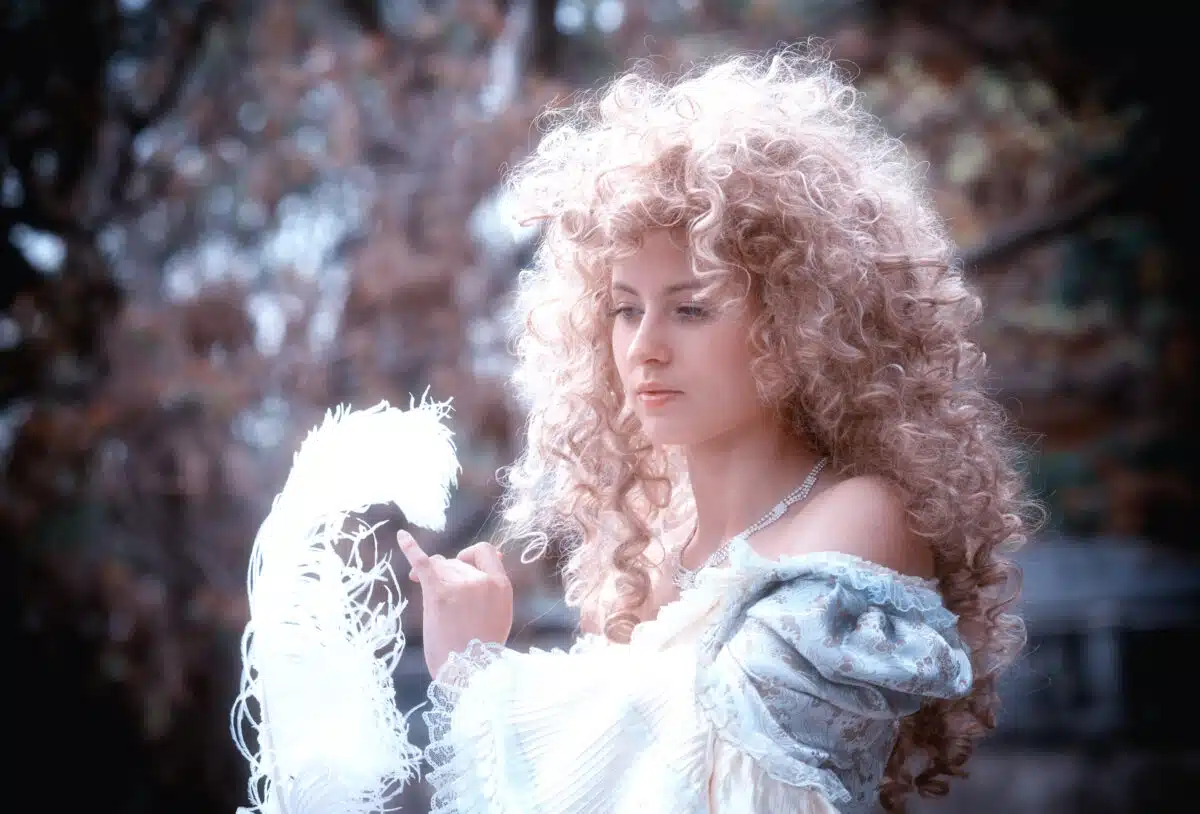
“The Poet To His Wife” by Unknown
No image of creative fancy thou,
But an imbodying of truth and love-
Fond sharer of my joys and sorrows- how
Thon art such unsubstantial forms above.
Most hollow-hearted, and most ignorant
Of gentle Love’s best happiness, are they
Who rail against our state; by Heaven, and cant
Apart, ‘ tis one of purest joy. I pray
That we may not, through stubborn will perverse,
Changing, ourselves, God’s blessing to a curse,
Divert the stream of mutual delight;
But that it flow serenely, clear and bright,
Missing foul discontent’s dark, shallow wave,
And passion’s whirling eddies, to the grave
“To His Love” by William James Linton
(WHO HAD UNJUSTLY REBUKED HIM )
Gentle as Truth, and zealous even as Love—
Which is the fiercest of all earthly things;
Frank, and yet using caution as a glove
To guard the skin from foulnesses or stings,—
Giving the bare hand surely to the true :
Such would I be, to make me worthy you.
Bitter sometimes, as wholesome tonics are;
Wrathful as Justice in her earnest mood;
Scornful as Honour is, yet not to bar
Appreciation of the lowest good;
Loathing the vile, the cruel, the untrue:
How should my manhood else be worthy you?
Say I am subtil, fierce, and bitter-tongued:
Love is all this, and yet Love is beloved.
But say not that I wilfully have wrong’d
Eventhose whose hate and falsehood I have proved.
Who say this know me not, and never knew
What I would be, but to be worthy you.
From “Poets” by Philip James Bailey
Poets are all who love, who feel , great truths,
And tell them: and the truth of truths is love.
There was a time-oh, I remember well!
When, like a sea-shell with its sea-born strain,
My soul aye rang with the music of the lyre;
And my heart shed its lore as leaves their dew-..
A honey dew, and throve on what it shed.
All things I loved; but song I loved in chief.
Imagination is the air of mind;
Judgment its earth and memory its main;
Passion its fire. I was at home in heaven.
Swift like, I lived above ; once touching earth,
The meanest thing might master me: long wings
But baffled. Still and still I harped on song.
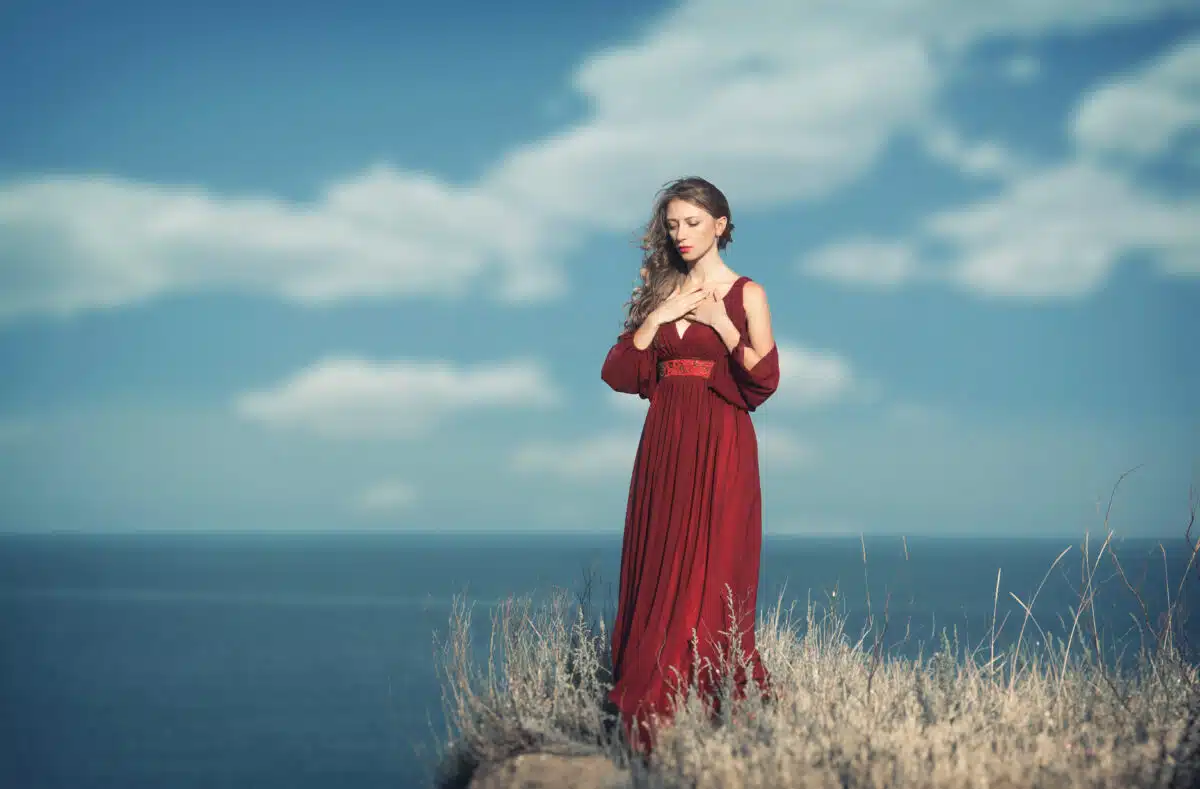
“Longing” by Matthew Arnold
Come to me in my dreams, and then
By day I shall be well again!
For then the night will more than pay
The hopeless longing of the day.
Come, as thou cam’st a thousand times,
A messenger from radiant climes,
And smile on thy new world, and be
As kind to others as to me!
Or, as thou never cam’st in sooth,
Come now, and let me dream it truth;
And part my hair, and kiss my brow,
And say, My love! why sufferest thou?
Come to me in my dreams, and then
By day I shall be well again!
For then the night will more than pay
The hopeless longing of the day.
“Security, 1831” by Ralph Waldo Emerson
A dull uncertain brain,
But gifted yet to know
That God has cherubim who go
Singing an immortal strain,
Immortal here below.
I know the mighty bards,
I listen when they sing,
And now I know
The secret store
Which these explore
When they with torch of genius pierce
The tenfold clouds that cover
The riches of the universe
From God’s adoring lover.
And if to me it is not given
To fetch one ingot thence
Of the unfading gold of Heaven
His merchants may dispense,
Yet well I know the royal mine,
And know the sparkle of its ore,
Know Heaven’s truth from lies that shine—
Explored they teach us to explore.
“Hymn” by Ralph Waldo Emerson
There is in all the sons of men
A love that in the spirit dwells,
That panteth after things unseen,
And tidings of the future tells.
And God hath built his altar here
To keep this fire of faith alive,
And sent his priests in holy fear
To speak the truth—for truth to strive.
And hither come the pensive train
Of rich and poor, of young and old,
Of ardent youth untouched by pain,
Of thoughtful maids and manhood bold.
They seek a friend to speak the word
Already trembling on their tongue,
To touch with prophet’s hand the chord
Which God in human hearts hath strung.
To speak the plain reproof of sin
That sounded in the soul before,
And bid you let the angels in
That knock at meek contrition’s door.
A friend to lift the curtain up
That hides from man the mortal goal,
And with glad thoughts of faith and hope
Surprise the exulting soul.
Sole source of light and hope assured,
O touch thy servant’s lips with power,
So shall he speak to us the word
Thyself dost give forever more.

“The Smile” by Anonymous
I saw her smile ;-the thought I breathed,
Oh! could that lovely smile be mine,
Each fairest rosebud, Fancy-wreathed,
Should in one grateful garland twine!
Ere yet the hope that life hath cheered
With Honour’s glow had waked my youth,
E’en then, that witching smile endeared
The calm abode of Love and Truth!
And o’er my heart, where now ‘ tis dark
And sunless save its gentle sway,
Still shines that smile, like some lone spark
Of brighter feeling passed away!
So seems one flower, when all the rest
Of Summers sweets have ceased to be,
One Moonbeam on the billow’s breast
When Night o’ershades yon silent sea.
“The Truth Of Woman” by Walter Scott (Sir)
Woman’s faith, and woman’s trust
Write the characters in the dust;
Stamp them on the running stream,
Print them on the moon’s pale beam,
And each evanescent letter
Shall be clearer, firmer, better,
And more permanent, I ween,
Than the thing those letters mean.
I have strain’d the spider’s thread
‘Gainst the promise of a maid;
I have weigh’d a grain of sand
‘Gainst her plight of heart and hand;
I told my true love of the token,
How her faith proved light, and her word was broken:
Again her word and truth she plight,
And I believed them again ere night.
“At The Last” by Philip Bourke Marston
Because the shadows deepened verily, —
Because the end of all seemed near, forsooth, –
Her gracious spirit, ever quick to ruth,
Had pity on her bond- slave, even on me.
She came in with the twilight noiselessly,
Fair as a rose, immaculate as Truth;
She leaned above my wrecked and wasted youth;
I felt her presence, which I could not see.
“God keep you, my poor friend , “I heard her say;
And then she kissed my dry, hot lips and eyes.
Kiss thou the next kiss, quiet Death, I pray;
Be instant on this hour, and so surprise
My spirit while the vision seems to stay;
Take thou the heart with the heart’s Paradise.
Poems About Truth and Life
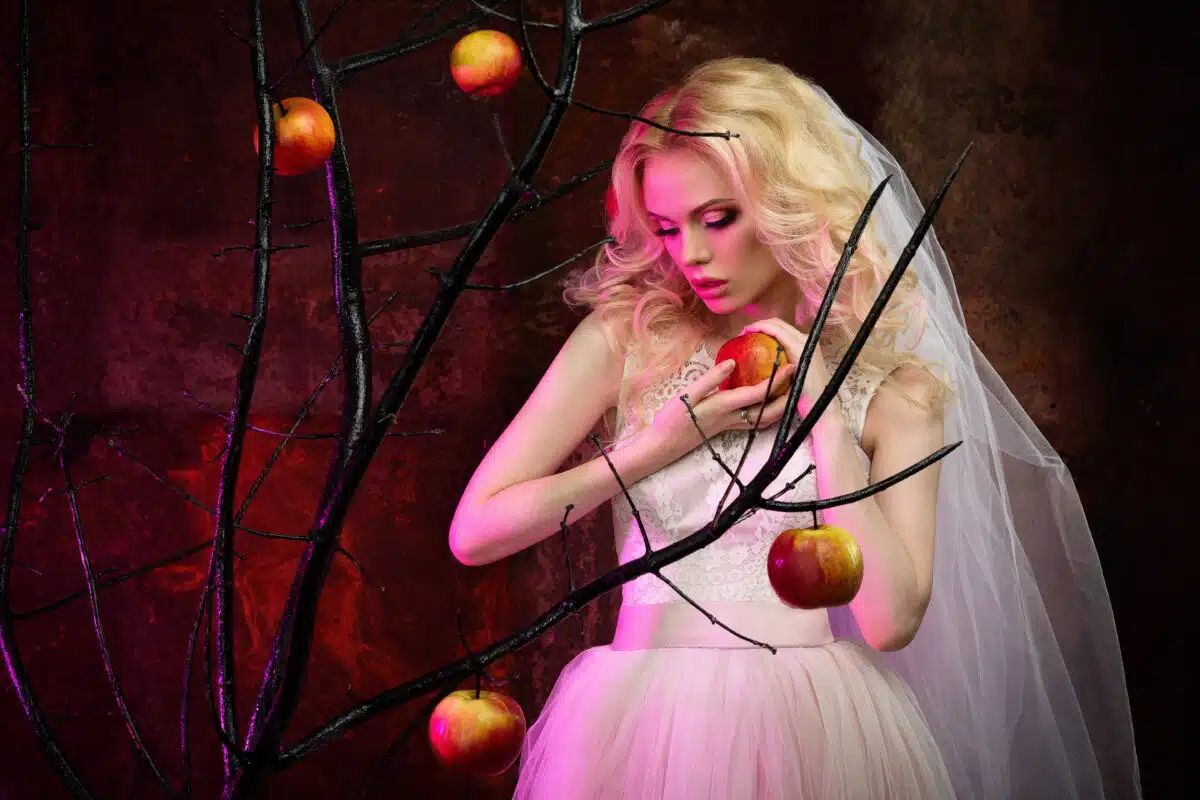
“The Truth” by William Henry Davies
Since I have seen a bird one day,
His head pecked more than half away;
That hopped about, with but one eye,
Ready to fight again, and die,
Ofttimes since then their private lives
Have spoilt that joy their music gives.
So when I see this robin now,
Like a red apple on the bough,
And question why he sings so strong,
For love, or for the love of song;
Or sings, maybe, for that sweet rill
Whose silver tongue is never still,
Ah, now there comes this thought unkind,
Born of the knowledge in my mind:
He sings in triumph that last night
He killed his father in a fight;
And now he’ll take his mother’s blood,
The last strong rival for his food.
“The Truth Teller” by Ella Wheeler Wilcox
The Truth Teller lifts the curtain,
And shows us the people’s plight;
And everything seems uncertain,
And nothing at all looks right.
Yet out of the blackness groping,
My heart finds a world in bloom;
For it somehow is fashioned for hoping,
And it cannot live in the gloom.
He tells us from border to border,
That race is warring with race;
With riot and mad disorder,
The earth is a wretched place;
And yet ere the sun is setting
I am thinking of peace, not strife;
For my heart has a way of forgetting
All things save the joy of life.
I heard in my Youth’s beginning
That earth was a region of woe,
And trouble, and sorrow, and sinning:
The Truth Teller told me so.
I knew it was true, and tragic;
And I mourned over much that was wrong;
And then, by some curious magic,
The heart of me burst into song.
The years have been going, going,
A mixture of pleasure and pain;
But the Truth Teller’s books are showing
That evil is on the gain.
And I know that I ought to be grieving,
And I should be too sad to sing;
But somehow I keep on believing
That life is a glorious thing.
“Tribute” by William Henry Holcombe
To Emanuel Swedenborg
Lost from her altars, Nature’s noblest Priest!
On earth ignored, traduced, misunderstood,
Thou hast ascended to the empyreal feast
With thy co-laborers, the Wise and Good.
Men, all too weak or blind the Truth to see,
Would shroud thy grave in thickest pall of night,
Where Angels with prophetic smiles of light
Have planted flowers of immortality.
Like mountain-peak emerging from a flood,
In clouds and darkness lone thou standest now,
As to the ark one sacred summit stood,
When all the world was sunk in waves below:
But in the future when the watery waste,
By the great ocean of God’s Light displaced,
Shall of its ravage leave no mark to tell ,
Men in their vales shall view thee from afar
Towering serenely by the Morning Star,
In height of glory inaccessible.

“Shadows” by Lord Houghton
I.
They owned their passion without shame or fear,
And every household duty counted less
Than that one spiritual bond, and men severe
Said they should sorrow for their wilfulness.
And truth the world went ill with them ; he knew
That he had broken up her maiden life,
Where only pleasures and affections grew,
And sowed it thick with labour, pain and strife.
What her unpractis’d weakness was to her
The presence of her suffering was to him ;
Thus at Love’s feast did Misery minister,
And fill their cups together to the brim.
They asked their kind for hope, but there was none,
Till Death came by and gave them that and more ;
Then men lamented, —but the earth rolls on,
And lovers love and perish as before.
II.
They seemed to those who saw them meet
The casual friends of every day,
Her smile was undisturbed and sweet,
His courtesy was free and gay.
But yet if one the other’s name
In some unguarded moment heard,
The heart you thought so calm and tame,
Would struggle like a captured bird :
And letters of mere formal phrase
Were blistered with repeated tears , —
And this was not the work of days ,
But had gone on for years and years!
Alas ! that love was not too strong
For maiden shame and manly pride!
Alas ! that they delayed so long
The goal of mutual bliss beside.
Yet what no chance could then reveal,
And neither would be first to own,
Let fate and courage now conceal,
When truth could bring remorse alone.
“Death” by Andrew Macnay
“Since ye have honestly revealed,
What ye amaist owre lang concealed,
I will forgie you, though in anger,
And spare your life a little langer:
I only wanted to unfold
The little secret truth you’ve told,
That ye might shun the fearfu’ gait,
Where hapless sinners meet their fate !
I canna tell ye whaur he’s gane,
O’ whom his neighbours did complain
But, as ye are an honest man,
And working ever near my han’,
I think it right to tell you here,
To mind that death is ever near,
And if ye ay to things attend
That lead unto a happy end,
O’ my advice you’ll ne’er complain,
Nor dread me when I come again.
“Honest Poverty” by Andrew Macnay
To young and auld this tale is wrote,
Wha’re wi’ an honest heart infeft :
Though all our joys are not complete,
We still should mak an honest shift.
If Poverty stares at our door,
To tell our lowly pedigree ;
Yet still we know a heavenly Power,
Will to the poor a helper be.
Though hardships unforeseen should come,
Before there’s any signal given ;
Our faith and hope no less should be,
Than if we shared shared the the bliss of heaven
An honest mind’s a noble gift ;
Deceit and fraud we ought to shun,
For ‘ tis well known, in every land,
That honest Poverty’s no sin.
A truthful heart’s a noble part,
So lying all men should disdain,
For Eve was first with lies deceived,
Which brought to ruin sinful man.
Dishonesty will never bring to
Its votaries to a flowery path,
Nor yet, when verging on the grave,
Give comfort at the hour of death.
True Honesty’s the richest gift
That those in poortith’s vale can share,
So, with integrity, we ought
Our name and character to bear.
For low and great must all await
To hear their final sentence given ;
And those who live a holy life,
Shall find a blest reward in heaven.
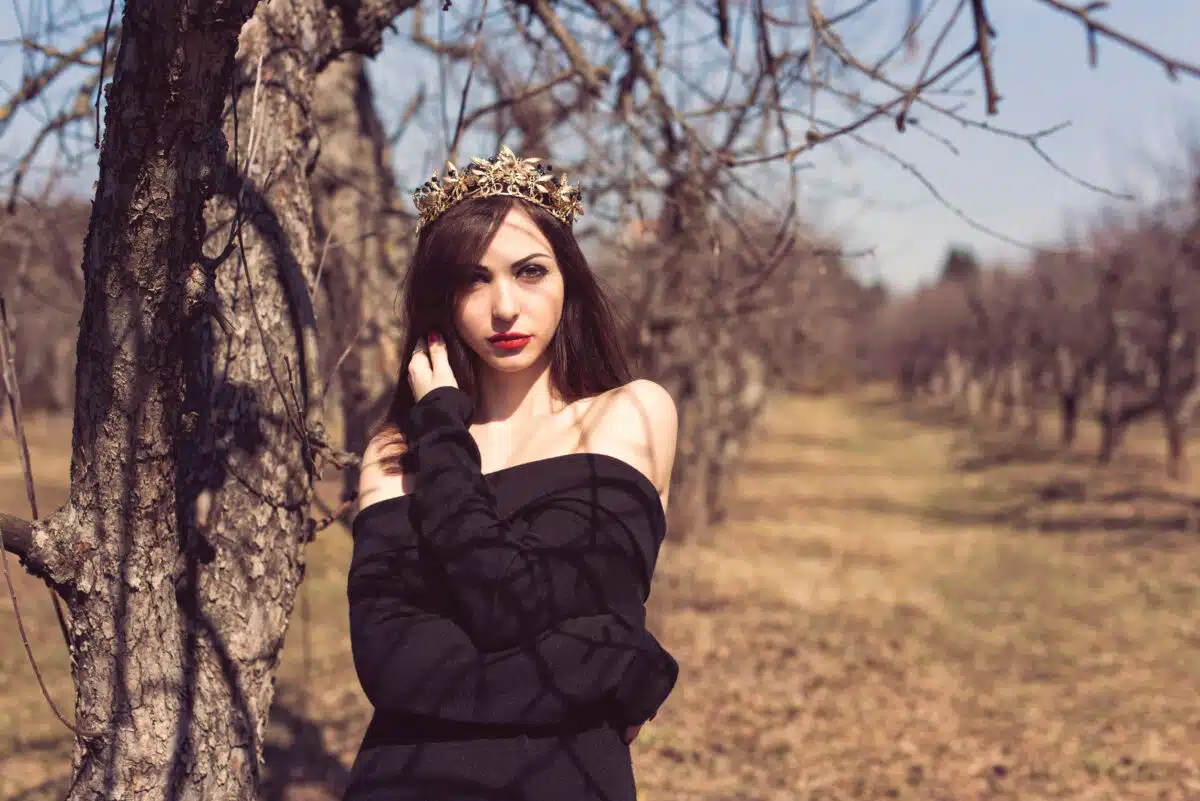
“The Universe Void” by William Bell Scott
Revolving Worlds, revolving systems, yea,
Revolving firmaments, nor there we end:
Systems of firmaments revolving, send
Our thought across the Infinite astray,
Gasping and lost and terrified, the day
Of life, the goodly interests of home,
Shrivelled to nothing; that unbounded dome
Pealing still on, in blind fatality.
No rest is there for our souls’ wingèd feet,
She must return for shelter to her ark
The body, fair, frail, death-born, incomplete:
And let her bring this truth back from the dark;
Life is self-centred, man is nature’s god;
Space, time, are but the walls of his abode.
From “Christabel” by Samuel Taylor Coleridge
Alas! they had been friends in youth;
But whispering tongues can poison truth;
And constancy lives in realms above;
And life is thorny ; and youth is vain;
And to be wroth with one we love
Doth work like madness in the brain.
And thus it chanced, as I divine,
With Roland and Sir Leoline.
Each spake words of high disdain
And insult to his heart’s best brother:
They parted-ne’er to meet again!
But never either found another
To free the hollow heart from paining
They stood aloof, the scars remaining,
Like cliffs which had been rent asunder;
A dreary sea now flows between; —
But neither heat, nor frost, nor thunder,
Shall wholly do away, I ween,
The marks of that which once hath been.
“Qui Laborat, Orat.” by Arthur Hugh Clough
O Only Source of all our light and life,
Whom as our truth, our strength, we see and feel,
But whom the hours of mortal moral strife
Alone aright reveal!
Mine inmost soul, before thee inly brought,
Thy presence owns ineffable, divine;
Chastised each rebel self-encentered thought,
My will adoreth Thine
With eye down-dropt, if then this earthly mind
Speechless remain, or speechless e’en depart;
Nor seek to see-for what of earthly kind
Can see Thee as Thou art?
If well-assured ‘ tis but profanely bold
In thought’s abstractest forms to seem to see,
It dare not dare the dread communion hold
In ways unworthy Thee,
O not unowned, thou shalt unnamed forgive,
In worldly walks the prayerless heart prepare;
And if in work its life it seem to live,
Shalt make that work be prayer.
Nor times shall lack, when while the work it plies,
Unsummoned powers the blinding film shall part,
And scarce by happy tears made dim, the eyes
In recognition start.
But, as Thou willest, give or e’en forbear
The beatific supersensual sight,
So, with Thy blessing blest, that humbler prayer
Approach Thee morn and night.
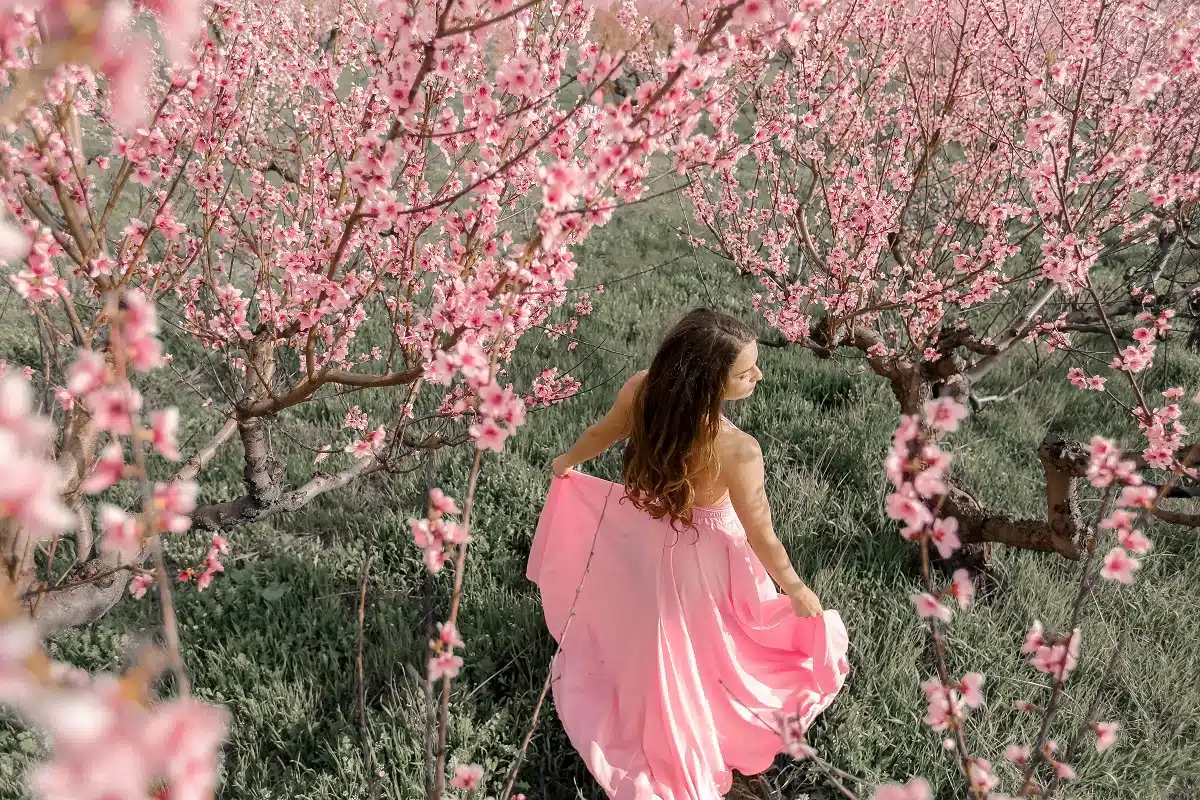
“Music” by Alice and Phoebe Cary
There is music, deep and solemn,
Floating through the vaulted arch
When, in many an angry column,
Clouds take up their stormy march :
O’er the ocean billows, heaping
Mountains on the sloping sands,
There are ever wildly sweeping
Shapeless and invisible hands.
Echoes full of truth and feeling
From the olden bards sublime,
Are, like spirits, brightly stealing
Through the broken walls of time.
The universe, that glorious palace,
Thrills and trembles as they float,
Like the little blossom’s chalice
With the humming of the mote.
On the air, as birds in meadows—
Sweet embodiments of song—
Leave their bright fantastic shadows
Trailing goldenly along.
Till, aside our armour laying,
We like prisoners depart,
In the soul is music playing
To the beating of the heart.
“Man Believes The Strong” by Alice and Phoebe Cary
Oh! in this world, where all is fair and bright,
Save human wickedness and human pride,
Marring what else were lovely to the sight,
It is a truth that may not be denied,
However deeply we deplore the wrong,
Man hath believed, and still believes the strong.
When injured and defenceless woman stands,
Haply the child of innocence or youth,
And lifts to heaven her pleading voice and hands
In all the moving eloquence of truth,
Who will believe, in that most trying hour,
Her words who is not strong in wealth or power?
From “The Burden of Itys” by Oscar Wilde
Sing on! sing on! I would be drunk with life,
Drunk with the trampled vintage of my youth,
I would forget the wearying wasted strife,
The riven veil, the Gorgon eyes of Truth,
The prayerless vigil and the cry for prayer,
The barren gifts, the lifted arms, the dull insensate air!

“X. Phantasis” by Frederick Tennyson
Phantasis is an Angel sent from Heaven
To dwell with Man upon the mournful Earth:
To give him joy as when the radiant fire
Pours through the rent clouds of a winter’s day;
Phantasis is a rainbow in the Soul
Breaking the white light of the Sun of Truth
Into all colours; if she fashions Time
She shows him in such grand and lovely shapes,
Transfiguring, transcending, glorifying,
As dwarf all shadows of the storied years
Save only the Divine; Her magic moulds
From lifeless substance more than living grace;
She robes and crowns herself as Nature’s Queen;
With all its splendours, hid from other eyes;
And wafts herself upon the wings of song
Up to the gates of Heaven, and piles up fanes
To hold Her all the fairest on the earth.
From “The Life Tree” by Anonymous
And an awe crept o’er me, for I knew
That I gazed on the Powers of Truth;
As if my Spirit were rapt to view
Creation in her youth—
When the Fontal Well of Etherial Light
Flashed forth from its Life sublime,
In a limitless wave of ensouling might
Through the realms of Space and Time.
Poems About Liars and Fakes

“To * * * *” by William Motherwell
I never dreamed that lips so sweet,
That eyes of such a heavenly hue,
Were framed for falsehood and deceit,
Would prove, as they have proved—untrue.
Methought if love on earth e’er shone,
“Twas in the temple of thine eyes,
And if truth’s accents e’er were known,
‘Twas in the music of thy sighs.
Has then thy love been all a show,
Thy plighted truth an acted part—
Did no affection ever glow
In the chill region of that heart ?
And could’st thou seem to me to cling
Like tendril of the clasping vine,
Yet all prove vain imagining,
Thy soul yield no response to mine?
It has been so—so let it be—
Rejoice, thou false one, in thy guile,
Others, perhaps , may censure thee,
I would not dim thy fickle smile.
Farewell ! — In kindness I would part,
As once I deemed in love we met
Farewell! —This wrong’d and bleeding heart.
Can thee Forgive, but not Forget!
“The Lean Lover” by William Motherwell
I paced, an easy rambler,
Along the surf- washed shore—
And watched the noble freightage
The swelling ocean bore.
I met a moody fellow
Who thus discoursed his wo—
‘ Across the inconstant waters ,
Deceitful woman, go !
‘ I loved that beauteous lady—
More truly wight ne’er loved—
I loved that high-born lady,
My faith she long had proved:
Her troth to me she plighted
With passion’s amorous show—
Go o’er the inconstant waters,
Ungrateful worldling, go !
‘Be mine yon cliff- perched chapel
Which beetles o’er the deep;
There, like some way-worn palmer,
I’ll sit me down and weep.
I’ll note upon the billows
Her lessening sail of snow,
And waft across the waters—
Go, fleeting fair one , go!’
He clambered to the chapel
That toppled o’er the deep—
There, like a way- worn palmer,
He laid him down to weep:
And still I heard his wailing
Upon the strand below—
‘ Go o’er the inconstant waters,
Go, faithless woman, go!’
“Letter To A Hypocrite” by Andrew Macnay
To you, the upholder o’ deceit,
Your failings here I will relate:
You are the true and lawful heir
O’ vile Réproach, and wicked Slander;
Where’er in paths o’ sin you wander,
You weel deserve the corner chair.
But you should watch your ways, and think
How near you are destruction’s brink.
Hypocrisy’s your close companion,
She makes you king o’ her dominion,
And pride’s your royal garment there;
But you your mistress should forsake,
And with her your allegiance break,
Lest ye be doom’d to dark despair!
For you ought seriously to know
That you are on the verge of woe.
Your deeds frae some applause may get,
But they are such as good men hate,
(My mind to you I frankly tell) ,
And if you wish to gain respect,
You should upon those deeds reflect,
That lead unto Auld Hornie’s cell ;
For to speak truth, and truth is best,
There’s room for you amang the rest.
Of common sense you are bereft,
And a’ behin’ that’s to you left
Is vile Hypocrisy’s estate:
I for you those lines hae penn’d,
And for your good the same do send,
To warn you o’ your coming fate;
So that ye may, in after days,
Repent o’ a’ your wicked ways.
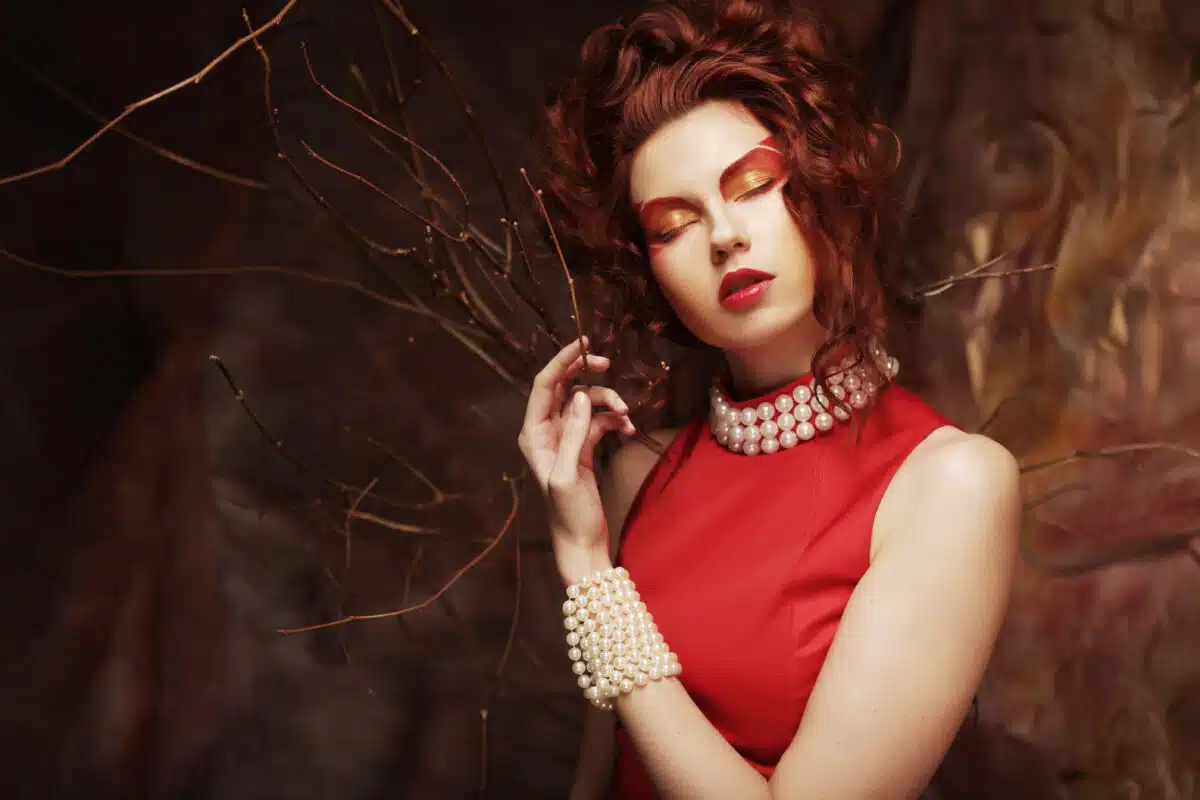
“The Adored, Wild, Strange, Irresistible” by Iris Tree
The adored, wild, strange, irresistible,
How they fail one at the last!
What is there in your faces
That we should worship with our souls?
Most lovable, perfidious,
Vague—
Molesting even our visions
With treacherous pathos.
O vulgarity, mediocrity, stupidity,
What is it in you that makes us lavish our love,
Covering your meagre bodies
With our passionate mantle, dyed with blood and dreams?
Life and its grey days, and time
Are a thin curtain through which you shadow,
Or a dim glass through which you peer.
You climb in at the windows of our souls
With ladders and stratagems,
You mope in corners with reproachful eyes.
But what do you do for us
Lute players, dancers, deceivers,
Other than lie with red lips
And cajole with tears of beryl?
People—
Men and women with laughable, tragic faces
Winking at love,
Treading our songs and illusions
Under petulant feet!
“To Julia” by Unknown
Mock me no more with Love’s beguiling dream,
A dream, I find, illusory as sweet:
One smile of friendship , nay, of cold esteem,
Far dearer were than passion’s bland deceit!
I’ve heard you oft eternal truth declare;
Your heart was only mine, I once believ’d.
Ah ! shall I say that all your vows were air?
And must I say, my hopes were all deceiv’d?
Vow, then, no longer that our souls are twin’d,
That all our joys are felt with mutual zeal;
Julia !-’tis vity, pity makes you kind;
You know love and you would seem to feel.
But shall I still seek within those arms
A joy in which affection takes no part?
No, no, farewell ! you give me but your charms,
When I had fondly thought you gave your hear
“Hope On” by Charles Harpur
Power’s a cheat, success but trying,
Even pleasure bears a sting;
Still ‘ tis useless, useless sighing,
Rather list to Hope replying
“The flowers must come again with spring;
And in the trampled way we’re going
Streams of comfort yet are flowing
Hark ! I hear them murmuring.
Fame’s a liar in the nation!
Love hath oft a wayward wing;
Still, hence seek not for occasion
To impugn Hope’s sweet persuasion
“The flowers will come again with spring;
And in the world- wide way we’re going
Streams of pure good yet are flowing
Hark! I hear them murmuring.”
Friendship turns, itself denying,
Even Truth, the heart may wring;
Still, though trust be daily dying,
Listen still to Hope replying—
“The flowers will come again with spring;
And in the blasted way we’re going
There’s yet one healing current flowing —
Hark ! I hear it murmuring. “
All is dream like, all off-wingeth,
All that time and tide doth bring ;
Then cold Death his black pall bringeth,
Still what matter while Hope singeth
“Lo! heaven is one eternal spring!
And midway through it rolls a river,
Wherein to bathe is health for ever
Hark! I hear it murmuring.”
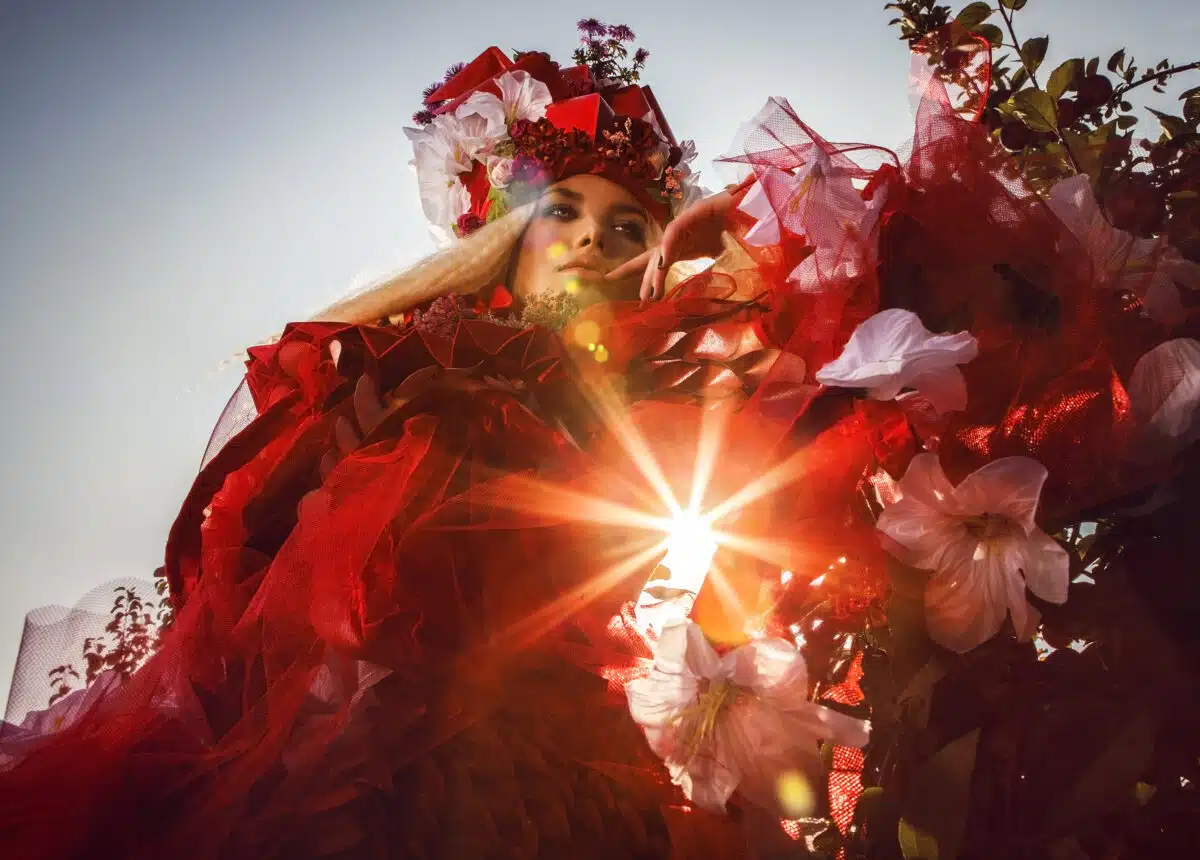
From “Woman” by Raseim Willowby
Some tell you of the love that gloweth
In her warm bosom, soft and fair;
But, simple youth, he little knoweth
What deep deceit lies lurking there.
In some there may be virtue found,
But such an one’s a rare exception;
Let her be tried, and I’ll be bound,
She’s in her heart’s-core deep deception.
Her winning words may speak of bliss,
She’s nought but vanity and vexation;
A look’s a curse, but oh! a kiss,
‘Tis utter ruin, ’tis sure d—n— tion.
“To An Unfortunate Woman At The Theatre” by Samuel Taylor Coleridge
Maiden, that with sullen brow
Sitt’st behind those virgins gay,
Like a scorch’d and mildew’d bough,
Leafless ‘ mid the blooms of May!
Him who lured thee and forsook,
Oft I watch’d with angry gaze,
Fearful saw his pleading look,
Anxious heard his fervid phrase.
Soft the glances of the youth,
Soft his speech, and soft his sigh;
But no sound like simple truth,
But no true love in his eye. “
Loathing thy polluted lot,
Hie thee, Maiden, † hie thee hence!
Seek thy weeping Mother’s cot,
With a wiser innocence.
Thou hast known deceit and folly,
Thou hast felt, that vice is woe:
With a musing melancholy
Inly arm’d, go, Maiden! go.
Mother sage of self- dominion,
Firm thy steps, O Melancholy!
The strongest plume in Wisdom’s pinion
Is the memory of past folly.
Mute the sky-lark and forlorn,
While she moults the firstling plumes,
That had skimm’d the tender corn,
Or the beanfield’s odorous blooms.
Soon with renovated wing
Shall she dare a loftier flight,
Upward to the day- star spring,
And embathe in heavenly light.
“Epigram” by Raseim Willowby
I hate a man puffd up with self-conceit,
Whose art is Envy and his soul Deceit,
In whose thick head and sodden sackless brain,
Of common sense there’s not a single grain ,
Stupid as an ass and sour as a hog,
Without a pleasant word e’en for a dog,
With narrow mind and low contracted soul,
A strutting coxcomb and a purse-proud fool.
I hate the man who with deceitful art
Will on another play so vile a part,
As with false friendship and affected smile,
Lay snares to catch him, and with tricks so vile
Betray his confidence so unsuspecting,
When nought but friendship he is then expecting.
I’d bring such fellows to the lowest level —
I hate them aye worse than I hate the devil.
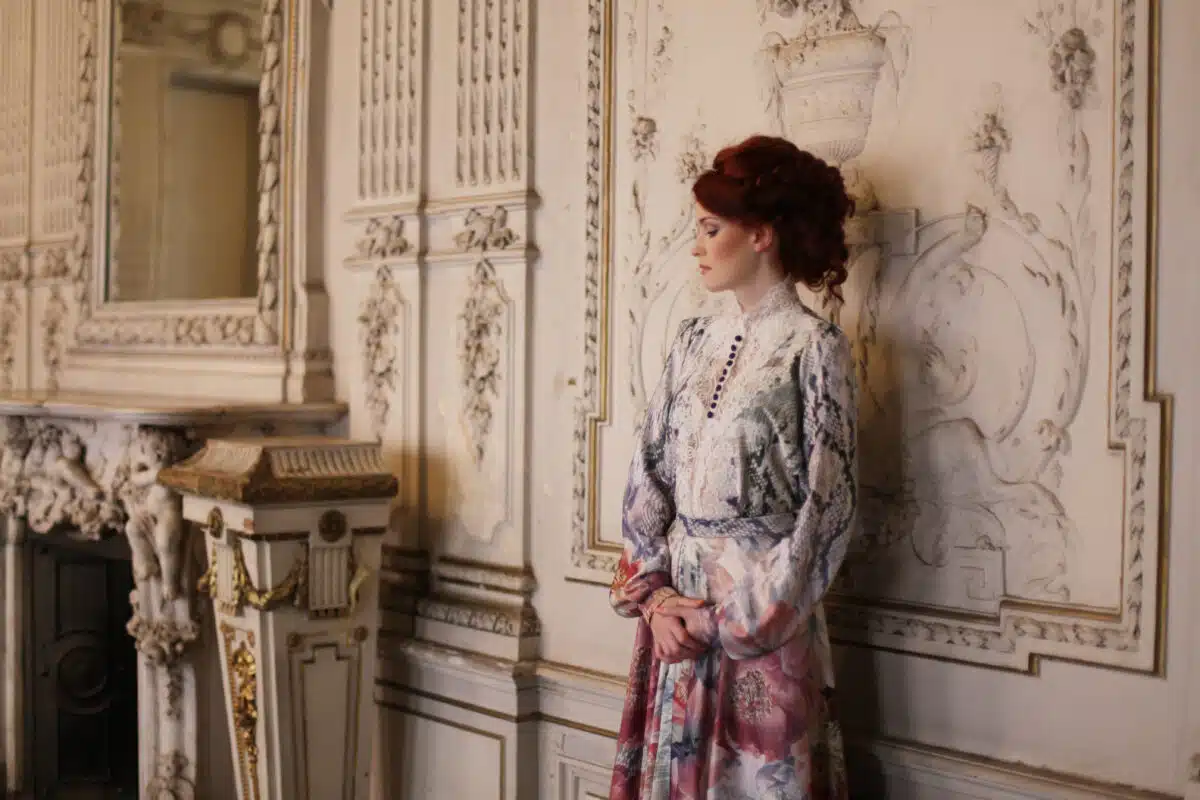
“If I Were What I Would Be, and Could Break” by Iris Tree
If I were what I would be, and could break
The buttressed fortress of stupidity
Where laws are sentinels, and lies the masonry,
Surrounded with inertia, weedy lake,
Where centuries of mud lie curdled, and the fake
Grandeur of cardboard turrets, solemn puppetry—
The gods are blinking at us sleepily,
Tired of our games, the muddles that we make,
The bloodshed, idol worshipping, the chess
Of king, queen, castle, bishop, knight and pawn—
The rigid squares of black and white, they dress
With their perpetual challenge—faded, worn,
Are all the creeds and praises you profess
To weary gods that stretch themselves and yawn.
From “Fears In Solitude” by Samuel Taylor Coleridge
Pollutions from the brimming cup of wealth;
[A selfish, lewd, effeminated race, ]
Contemptuous of all honourable rule,
Yet bartering freedom and the poor man’s life
For gold, as at a market ! The sweet words
Of Christian promise, words that even yet
Might stem destruction, were they wisely preach’d,
Are mutter’d o’er by men, whose tones proclaim
How flat and wearisome they feel their trade :
Rank scoffers some, but most too indolent
To deem them falsehoods or to know their truth.
Oh ! blasphemous ! the book of life is made
A superstitious instrument, on which
We gabble o’er the oaths we mean to break;
For all must swear-all and in every place,
College and wharf, council and justice-court;
All, all must swear, the briber and the bribed,
Merchant and lawyer, senator and priest,
The rich, the poor, the old man and the young;
All, all make up one scheme of perjury,
That faith doth reel; the very name of God
Sounds like a juggler’s charm ; and, bold with joy,
Forth from his dark and lonely hiding-place,
(Portentous sight!) the owlet Atheism,
Sailing on obscene wings athwart the noon,
Drops his blue-fringed lids, and holds them close,
And hooting at the glorious sun in Heaven,
Cries out, “Where is it ?”
“O Flattery, Imposture, Battle Show” by Iris Tree
O flattery, imposture, battle show,
What banners have you woven from the parted raiment,
What crimes from Calvary, what endless flow
Of blood from blood, revenge, exacted payment!
How have you turned the simple truth to lies
Made capital from creeds and missed their beauty,
Exalted vainly with self-pitying sighs
The wrongs enacted in the name of duty.
And ever quoting God for your excuse,
Bribing divinity to cloak your shame,
You train the spirit for material use,
You sacrifice men’s hearts to feed your flame.
When shall the world be rid of these bald priests,
Pig-snouted with their gilded wolfish ears,
The scarlet cardinals of drunken feasts
Whose hands are washed in blood, whose feet in tears?
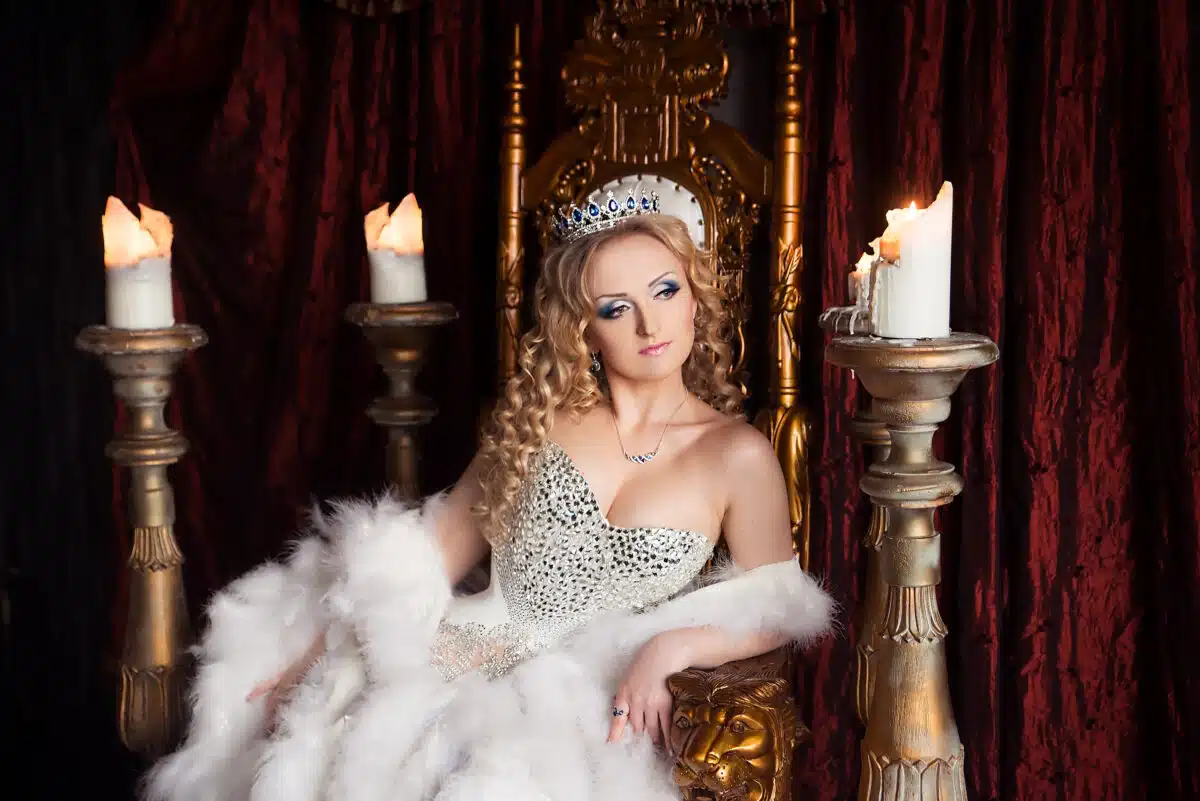
From “A Court-House Ring. A Satire” by Patrick Cudmore
In this poem, I am not over civil
M—D—, stands for ” Mike the Devil.”
With vile politicians he was in Co—
So you may call him Buck or Do.
My theme is n’t of faries, heroes, or princes,
But of one o’ th’ vilest of vile politicians.
D—was not known to the rulers of nations ;
In Kilkenny (——) he took up his station.
When he enter’d politics, he was no expert,
Till he became an apprentice to Beelzebub.
Bubby tutored him in lies and deceit,
Till he eclips’d the serpent that tempted Eve.
This C—— hack had a battalion of spies,
He defeat’d Doyle and D——ty with deceit and lies.
This trickster had no love for pigeon or dove,
In his greed he gulp’d down Kilkenny’s sweet bird ;
With lies, corruption, he stirred up contention ;
He was an adept at packing a convention.
Satan, with a smile, said to old Do,
” For Greenbacks you sell the county’s Gold; “
For well you know howto grab up pelf,
You may keep the profit to yourself.
From “A Night Vision” by William Motherwell
Meseems,
After this wondrous guise, that maiden sweet
Stood visible before me, while the beams
Of Dian pale, laughed round her little feet
With icy lustre, through the narrow pane;
And this discourse she held in merry vein;
Although methought ‘t was counterfeited, and
The matter strange, that none might understand.
She told me, that the moon was in her wane—
And life was tiding on, and that the world
Was waxen old—that nature grew unkind,
And men grew selfish quite, and sore bechurled—
That Honour was a bubble of the mind
And Virtue was a nothing undefined—
And as for Woman, She , indeed, could claim
Atitle all her own—She had a name
And place in Time’s long chronicles, DECEIT
And Glory was a phantom—Death a cheat!
Poems About Betrayal and Deception

“The Betrayal” by Alice and Phoebe Cary
Tell me, when the stars are flashing
In the northern skies so blue,
Or when morning’s tender crimson
Sweetly burns among the dew,
Comes there no reproachful whisper
From the mornings and the eves,
When Hope’s white buds to full beauty
Opened like the faint young leaves?
Ay, thou feel’st, despite thy silence—
That betrayal burns thy cheek;
Even to Love’s forgiving bosom
There be thoughts thou canst not speak!
From the roses of that bridal,
The dark price of nameless wo,
Thou mayst not unbind the curses
Till thy last of suns is low!
Lost and broken is the music
That with beauty filled the night,—
Melted from the frozen branches
Are the frost-stars glistening bright,
When a maid with trembling bosom
Watched a ne’er returning steed,
Cleaving through the silver shadows,
On and on, his shaft-like speed!
Faint against the ringing pavement,
Fainter still the hoof-strokes beat;
Scarcely can she tell the shimmer
Of the flint-sparks from the sleet.
Years are gone the village hill- tops
Redden with the sunset’s glow;
With a lap all bright with blossoms
Still the summers come and go
With a cheek grown thinner, whiter,
And the dark locks put away
From a brow of patient beauty,
Dwells the maiden of my lay;
Dwells she where the peaceful shadow
Of her native hills is thrown,
Binding up the wounds of others
All the better for her own.
“Fidelity in Doubt” by Guiraud Le Roux (Harriet Waters Preston, Translator)
Come, lady, to my song incline,
The last that shall assail thine ear.
None other cares my strains to hear,
And scarce thou feign’st thyself therewith delighted!
Nor know I well if I am loved or slighted;
But this I know, thou radiant one and sweet,
That, loved or spurned, I die before thy feet!
Yea, I will yield this life of mine
In every deed, if cause appear,
Without another boon to cheer.
Honor it is to be by thee incited
To any deed; and I, when most benighted
By doubt, remind me that times change and fleet,
And brave men still do their occasion meet.
“To The Evening Zephyr” by Alice and Phoebe Cary
I sit where the wild bee is humming,
And listen in vain for thy song;
I’ve waited before for thy coming,
But never, oh ! never so long.
How oft, with the blue sky above us,
And waves breaking light on the shore,
Thou, knowing they would not reprove us,
Hast kissed me a thousand times o’er!
So sweet were thy dewy embraces,
Thy falsity who could believe!
Some phantom thy fondness effaces—
Thou couldst not have aimed to deceive?
Thou toldest thy love for me never,
But all the bright stars in the skies,
Though striving to do so for ever,
Could scarcely have numbered thy sighs.
Alone in the gathering shadows,
Still waiting, sweet Zephyr, for thee,
I look for the waves of the meadows,
And dimples to dot the blue sea.
The blossoms that waited to greet thee
With heat of the noontide opprest,
Now flutter so lightly to meet thee,
Thou’rt coming, I know, from the West.
Alas ! if thou findest me pouting,
‘Tis only my love that alarms;
Forgive, then, I pray thee, my doubting,
And take me once more to thy arms!
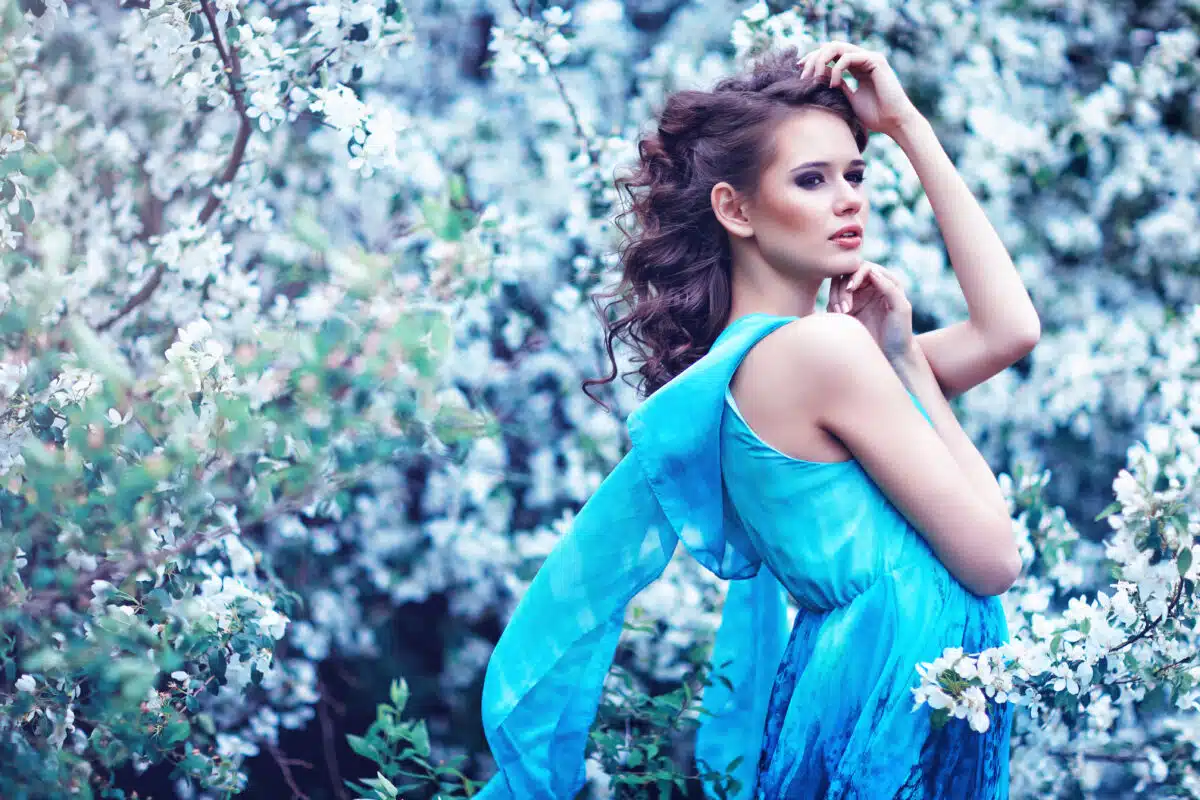
“Euphrosyne” by Matthew Arnold
I must not say that she was true,
Yet let me say that she was fair;
And they, that lovely face who view,
They should not ask if truth be there.
Truth—what is truth? Two bleeding hearts,
Wounded by men, by fortune tried,
Outwearied with their lonely parts,
Vow to beat henceforth side by side.
The world to them was stern and drear,
Their lot was but to weep and moan;
Ah! let them keep their faith sincere,
For neither could subsist alone.
But souls whom some benignant breath
Hath charmed at birth from gloom and care,—
These ask no love, these plight no faith,
For they are happy as they are.
The world to them may homage make,
And garlands for their forehead weave;
And what the world can give, they take—
But they bring more than they receive.
They shine upon the world; their ears
To one demand alone are coy:
They will not give us love and tears,
They bring us light and warmth and joy.
On one she smiled, and he was blest;
She smiles elsewhere—we make a din!
But ’twas not love which heaved her breast,
Fair child! it was the bliss within.
“Memory” by Ralph Waldo Emerson
Night-dreams trace on Memory’s wall
Shadows of the thoughts of day,
And thy fortunes, as they fall,
The bias of the will betray.
“Libertatis Sacra Fames” by Oscar Wilde
Albeit nurtured in democracy,
And liking best that state republican
Where every man is Kinglike and no man
Is crowned above his fellows, yet I see,
Spite of this modern fret for Liberty,
Better the rule of One, whom all obey,
Than to let clamorous demagogues betray
Our freedom with the kiss of anarchy.
Wherefore I love them not whose hands profane
Plant the red flag upon the piled-up street
For no right cause, beneath whose ignorant reign
Arts, Culture, Reverence, Honour, all things fade,
Save Treason and the dagger of her trade,
Or Murder with his silent bloody feet.
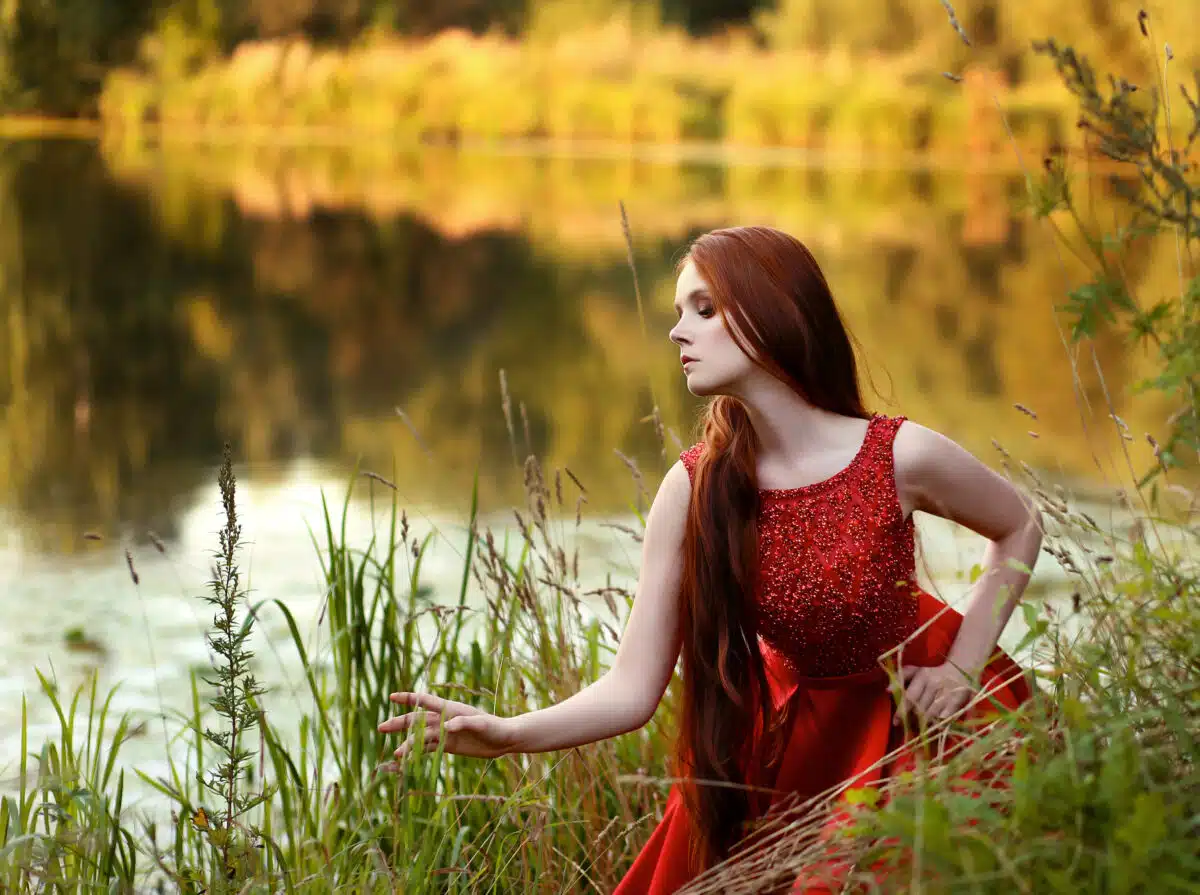
“On The Moon” by Jonathan Swift
I with borrow’d silver shine
What you see is none of mine.
First I show you but a quarter,
Like the bow that guards the Tartar:
Then the half, and then the whole,
Ever dancing round the pole.
What will raise your admiration,
I am not one of God’s creation,
But sprung, (and I this truth maintain,)
Like Pallas, from my father’s brain.
And after all, I chiefly owe
My beauty to the shades below.
Most wondrous forms you see me wear,
A man, a woman, lion, bear,
A fish, a fowl, a cloud, a field,
All figures Heaven or earth can yield;
Like Daphne sometimes in a tree;
Yet am not one of all you see.
